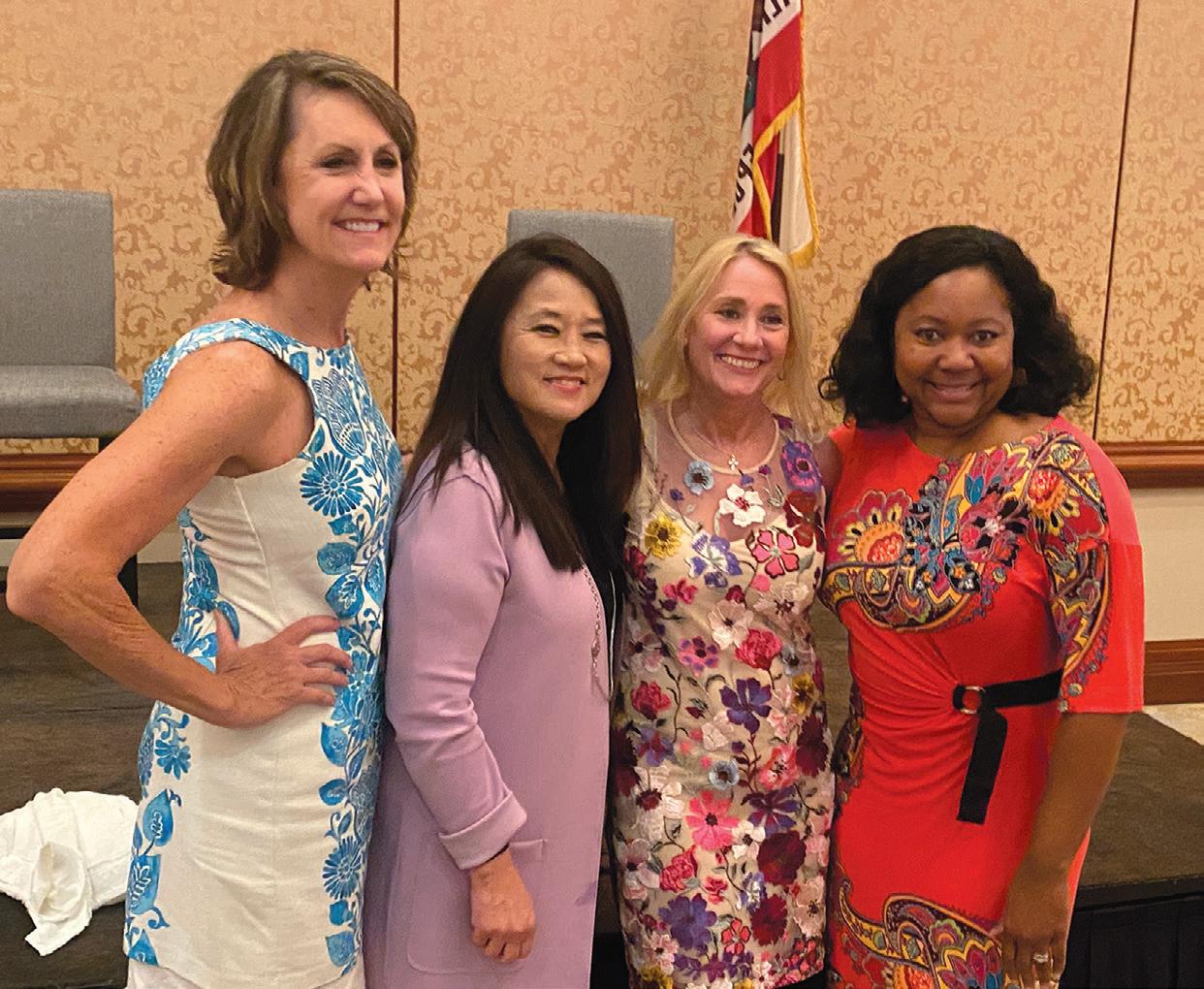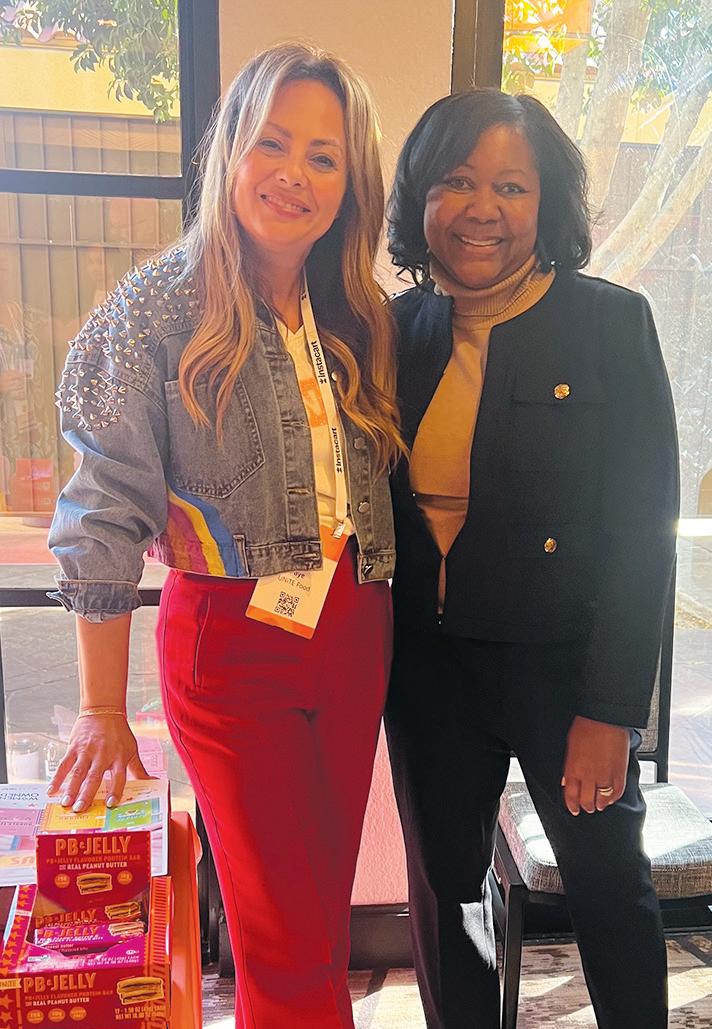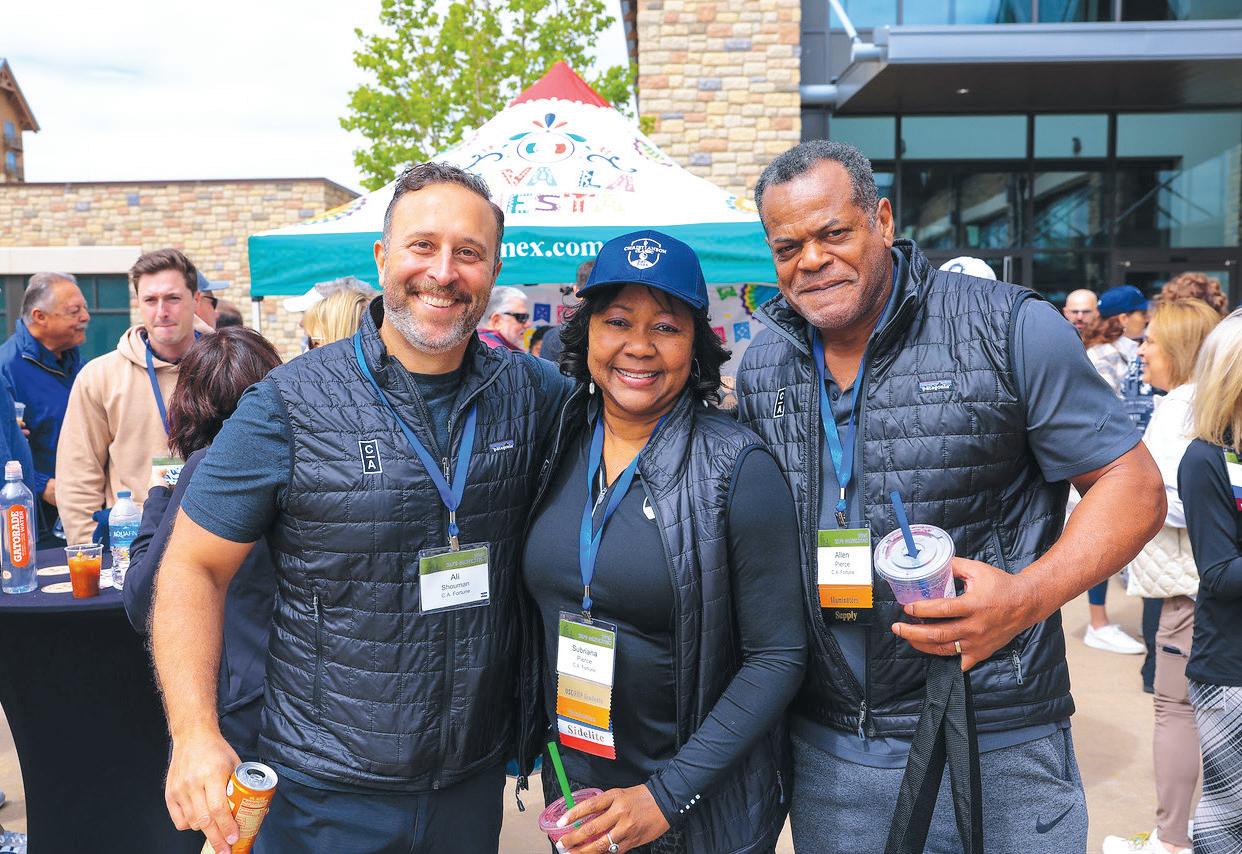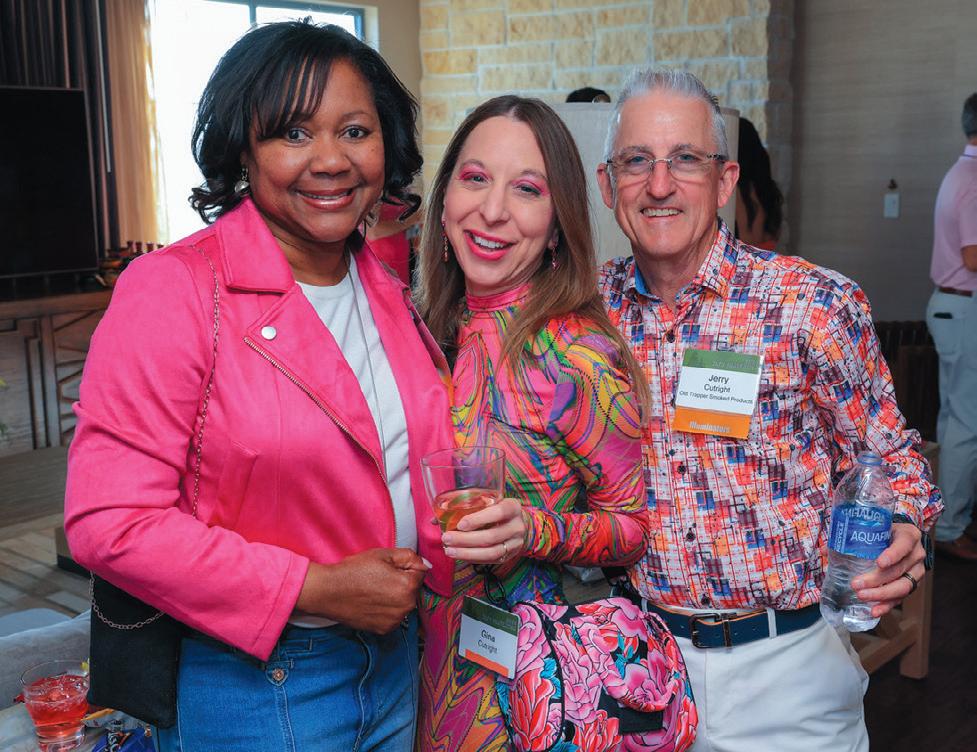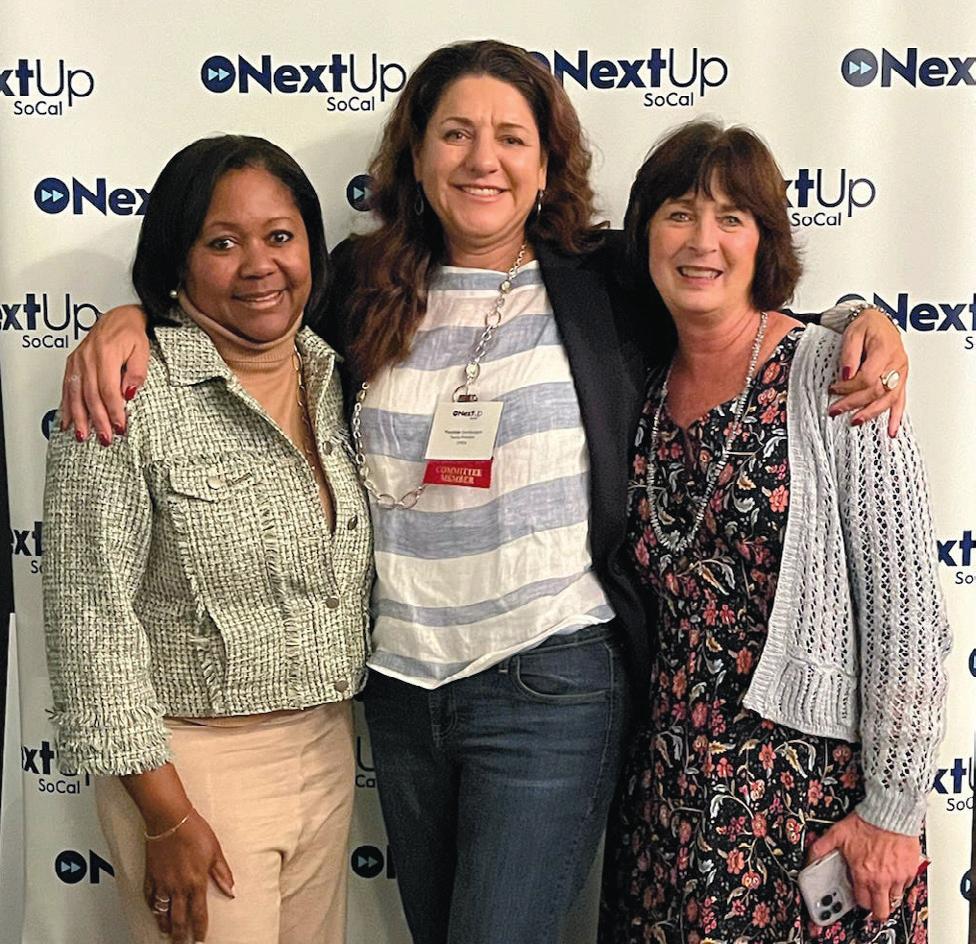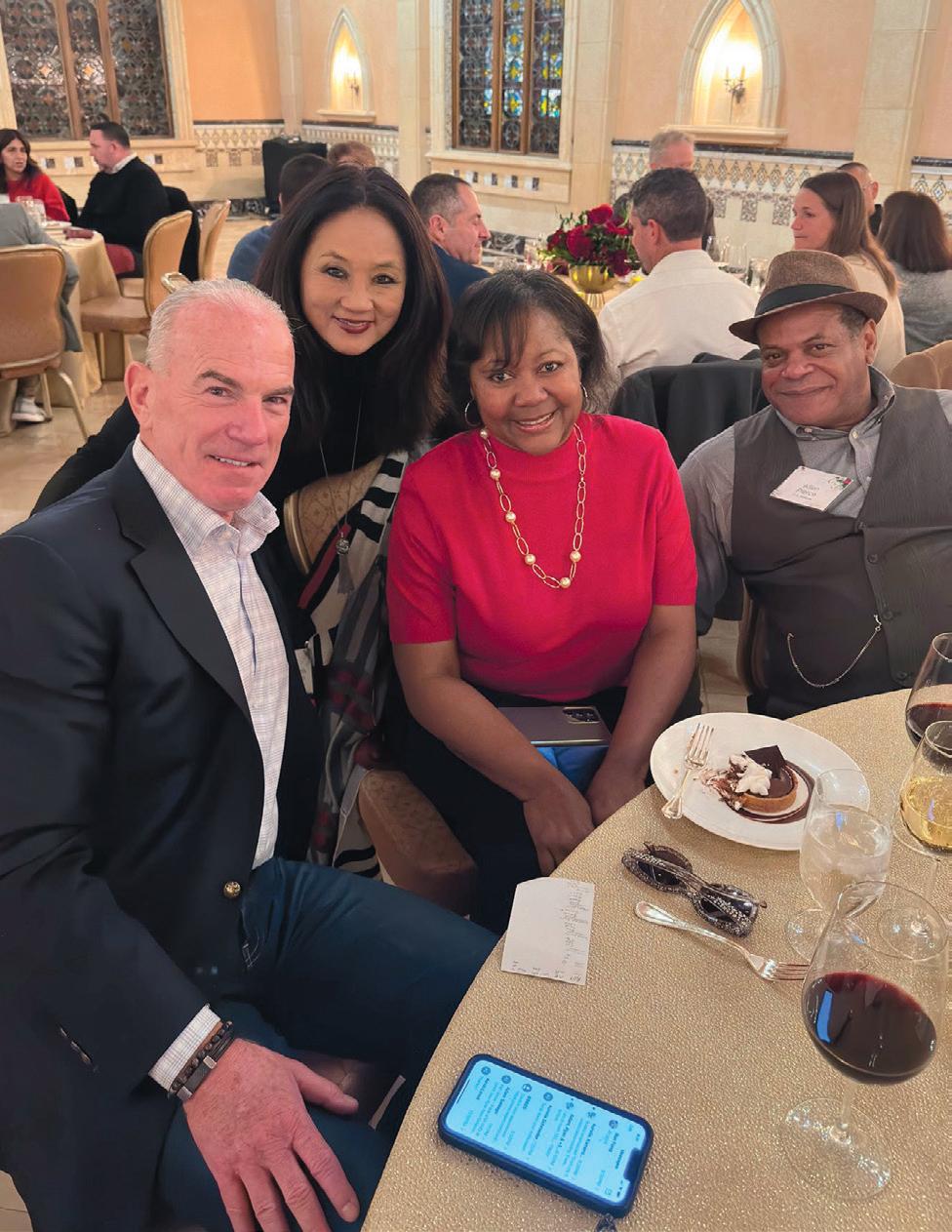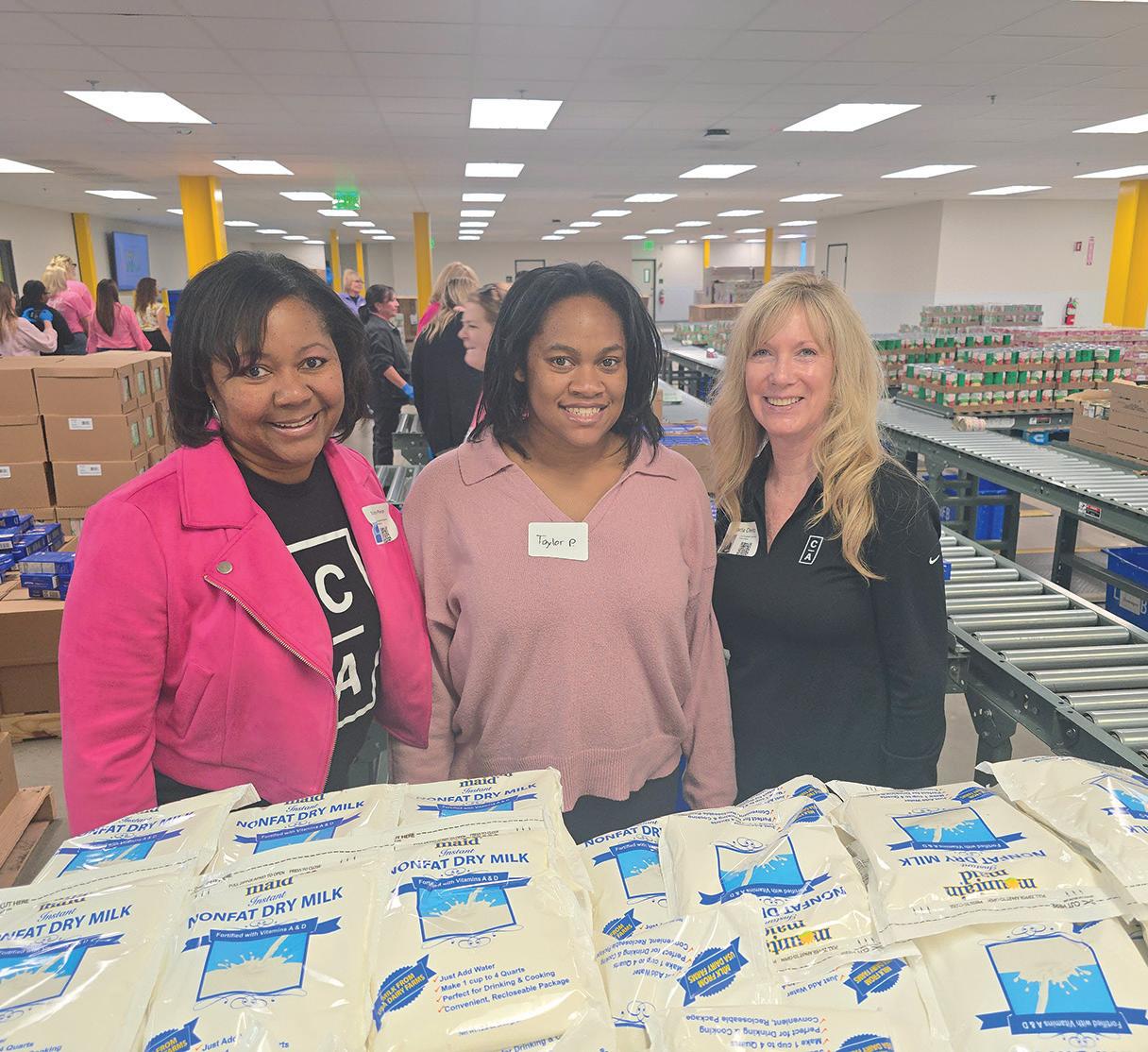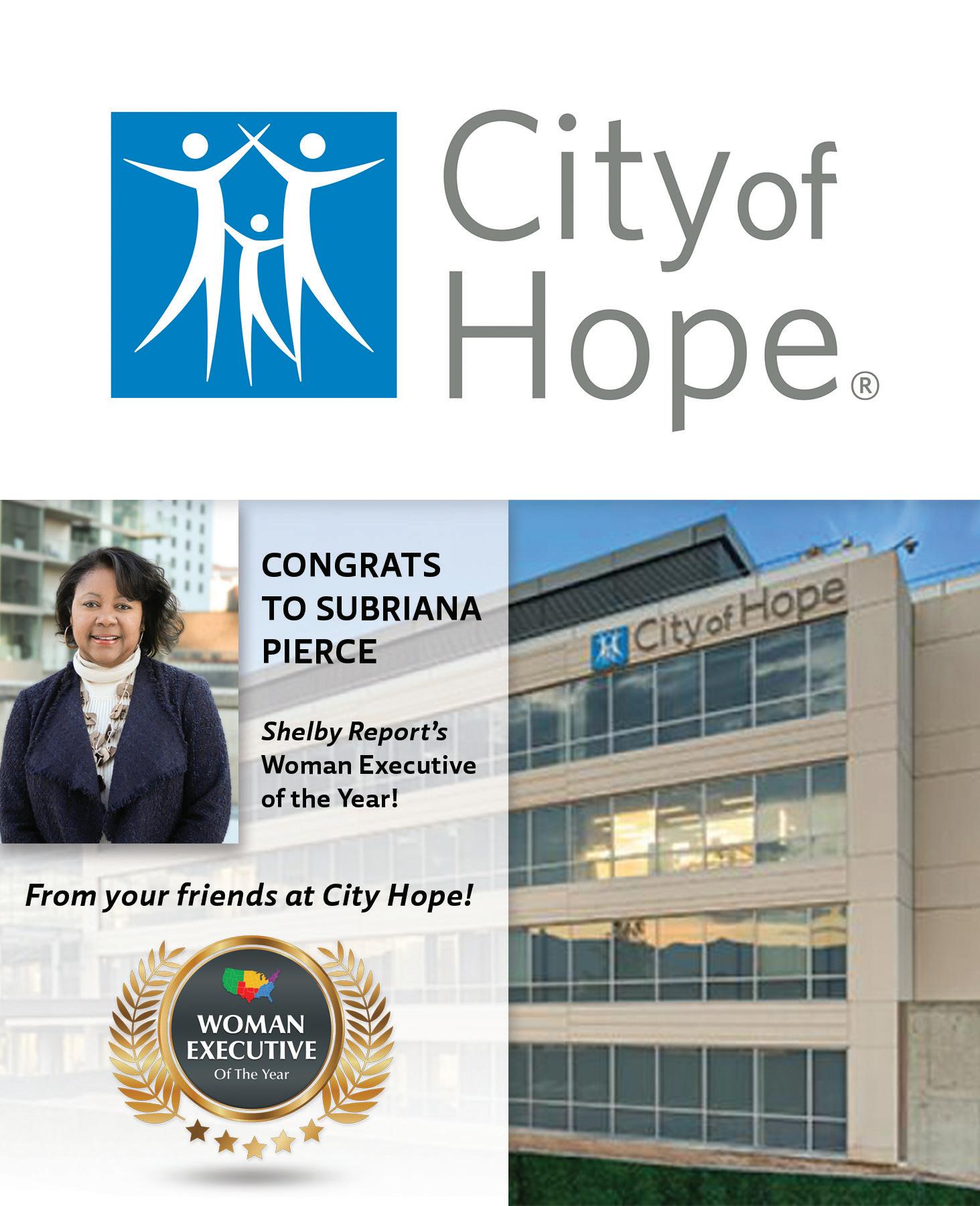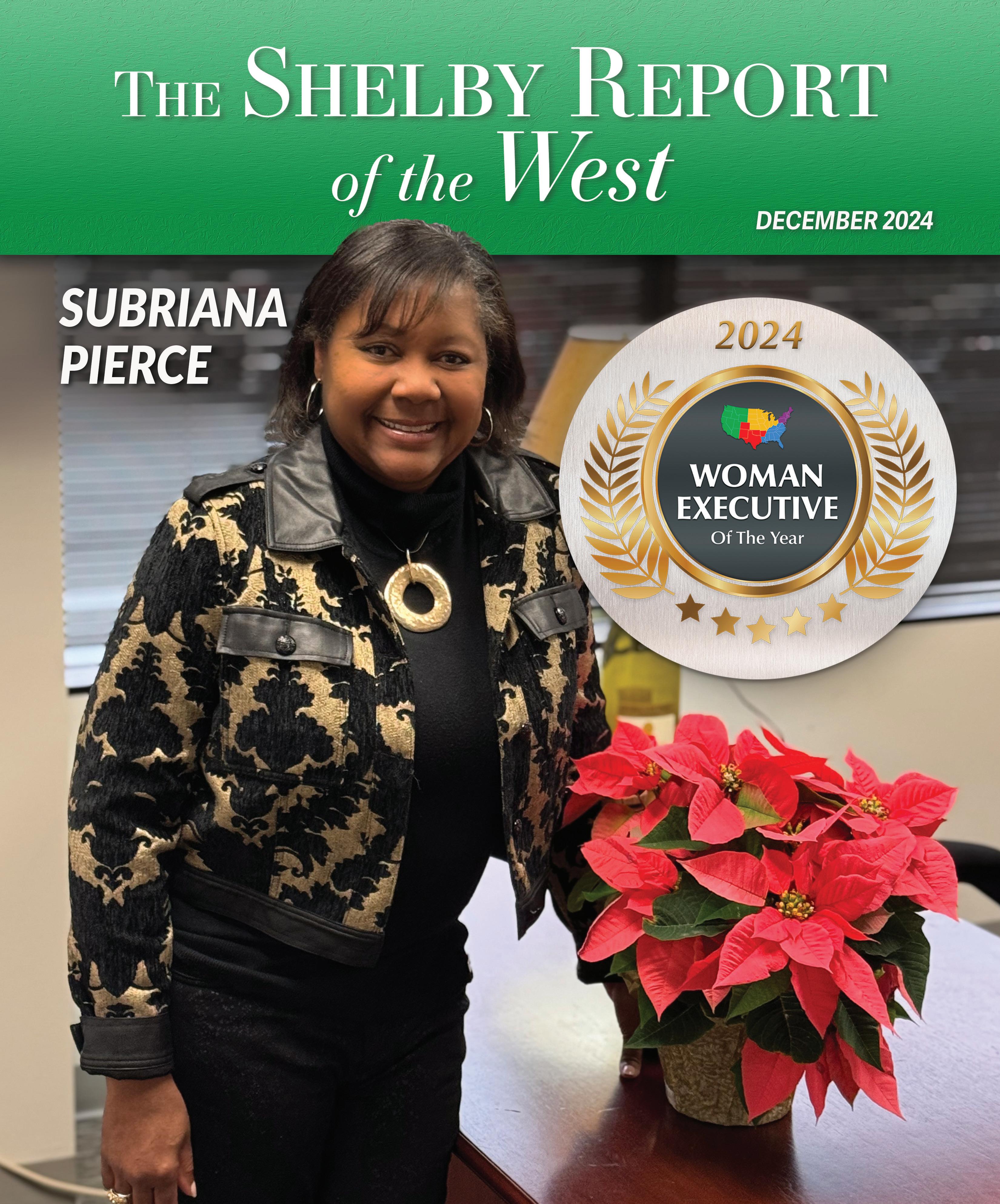




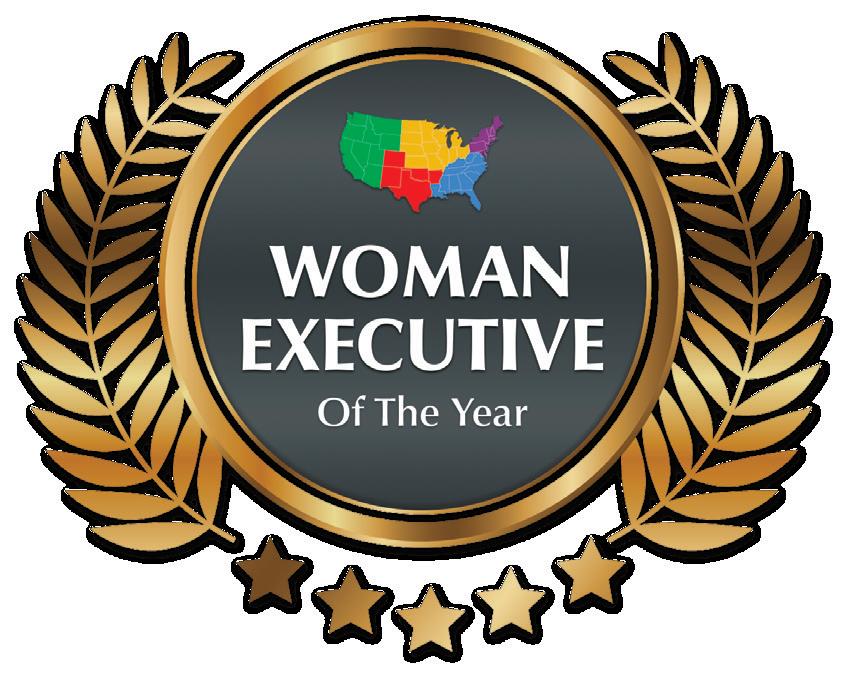
Subriana Pierce, SVP of sales for C.A. Fortune based in the company’s Southern California office, has been named The Shelby Report of the West’s Woman Executive of the Year for 2024. Pierce is being honored for her contributions to the grocery industry, both through her work and through her service to others.
Pierce has a rich and varied business background, primarily in the grocery industry. But she started her career in banking, utilizing the economics degree from Atlanta’s Spelman College that she earned in 1988. She moved to Cleveland, Ohio, to work for National City Bank for a couple of years. It was in Cleveland that she met her husband of 33 years, Allen Pierce, and decided to pursue her MBA at the University of Chicago, where she earned her degree in 1992.
While in Chicago, she did three different internships – one each with March of Dimes, the Chicago Bulls and Dominick’s food stores. Though both philanthropy and sports (particularly NFL football) are near and dear to her heart, it was the grocery industry that became the path forward for Pierce.
Over the years, she’s gained a mix of retail and CPG experience, which was key when she and Allen formed Navigator Sales and Marketing in 2014. Having wanted to be a CEO from the time she was old enough to know what one was, the brokerage firm was her chance.

Though the learning curve sometimes felt steep, she and Allen persevered – while raising six children – and nurtured Navigator into a firm that was purchased by C.A. Fortune in 2023. She decided to stay on after the purchase, and it has been a great move, she said.
Pierce shares more about her path, including what she has learned, her work and personal values and who has been instrumental in her highly successful career as a Black woman in the grocery industry.
Before we dig in, our readers would like to get to know you a bit more. Can you tell us a bit about your back story? What led you to this particular career path?
While pursuing my MBA at the University of Chicago, I had the opportunity to intern at Dominick’s, which sparked my passion for the grocery industry. After graduation, I joined Jewel-Osco’s corporate training program, launching a career that has kept me in this dynamic field ever since.
I’ve been fortunate to gain experience across different aspects of the industry, starting on the retailer side at Jewel, advancing my career on the manufacturer side with Frito-Lay and returning to the retail world with the Albertsons Companies in Southern California.
More recently, I transitioned to the broker side of the business, broadening my perspective even further. My father once told me, “People always have to eat,” and his wisdom has proven true. The grocery industry has been a stable and rewarding career path, allowing me to grow both professionally and personally.
Can you share the most interesting story that happened to you since you began leading your company?
When Allen and I launched our brokerage, Navigator, in 2014, we connected with another broker couple who had been in the business for a while. After
‘How do you help other people’
“I grew up in an environment where it wasn’t about you, it was about other people … It was about, how do you help other people? How it came out in my mom was as a nurse, how it came out in my dad was teaching, helping other people, helping students. It just came out in me a different way.”
– Subriana Pierce
learning about our pricing structure, they joked that our first check would probably be hardly anything. We laughed it off – until we realized they were right. After all the effort we put into our first client, they had guessed within $10 what our first check came to.
That experience was a wakeup call. We immediately revamped our pricing model and learned a critical lesson: Building strong relationships in this industry is key. Those connections often make the difference between success and failure.
Can you share a story about the funniest mistake you made when you were first starting? What lesson did you learn from that?
Early in my career at Frito-Lay, while overseeing sales for North Texas and Oklahoma, I made a significant (now funny) mistake that became a valuable learning experience. Working with the NCAA and our Tostitos brand team, I developed a special Oklahoma Sooners bag celebrating their anticipated national championship victory – well before the season had ended.
Confident in the idea, I had the bags designed, approved and ready for production. The plant was even on standby for my call to run the first 30,000 bags at the 11 p.m. shift the night of the game. As luck would have it, the Sooners lost the championship game and, with it, I felt that I lost a major opportunity for exposure in my career. However, I didn’t give up.
The following year, I went back to the same team and proposed a new plan: Sooners-themed bags featuring their game schedule, launched at the start of the season. This time, the program was a huge success. That experience taught me a critical lesson: Even good ideas can fail with the wrong execution.
By staying persistent, pivoting strategically and regaining the trust of the team, I was able to turn a failure into a win. Never give up on a good idea – it’s all about the timing and approach. It’s also why I don’t bet on sports; I’d be horrible at it.
None of us can achieve success without some help along the way. Is there a particular person who you are grateful toward who helped get you to where you are? Can you share a story about that?
This could fill pages because there isn’t just one person who shaped my journey. Instead, I’ve always believed in the power of having mentors, coaches and advocates.
One pivotal moment was when Sue Klug, then president of Albertsons SoCal, called and invited me to join her team as SVP of merchandising. That call and that relationship was truly life changing.
From page 11
I was also incredibly fortunate to have angels like Carole Christianson and Cheryl Kennick, who ensured I connected with all the right people in the Southern California market. From there, I focused on building my “Personal Board of Directors” and getting involved in organizations to foster my growth. I leaned into groups like NextUp (formerly the Network of Executive Women) and the Illuminators, where I formed lifelong relationships with powerful women like Kendra Doyel, Miriam Welch and Kelly Vlahakis-Hanks. I owe so much of my success to the incredible people I’ve worked with in these networks.
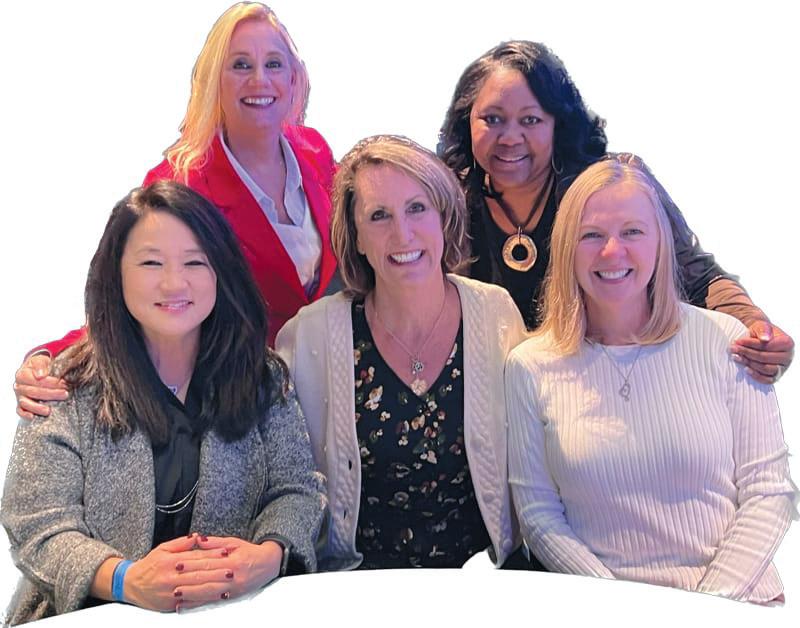
I serve on the Illuminator officer team with Lori Brown, who also serves on the Lighthouse Foundation board (Pierce’s foundation) along with HeeSook Alden. And I’ve had the honor of the powerful women trifecta in 2024 as Headlite/president of the Illuminators and sharing the stage with Lynn Melillo of Bristol Farms, who is chair of the California Grocers Association, as well as Nancy Lebold, CEO of New Seasons, chair of the WAFC. These are just a few examples of powerful women who have had an impact. There are so many women and men who have helped me along this journey.
However, if I had to single out just one person, it would be my husband, Allen Pierce. We’ve been married nearly 34 years, and he’s been my coach, mentor, pastor, advocate, negotiator, press agent, you name it. I am forever grateful to that man. No way I would have had any success without him.
We’re all interested in how to release and relieve stress. As a busy leader, what do you do to prepare your mind and body before a stressful or highstakes meeting, talk or decision? Can you share a story or some examples?
I always start with prayer – that’s my foundation. It grounds me and helps me focus. While I’m not sure I ever feel 100 percent prepared, I know I’m at my best before meetings when I’ve done what I call the 3 Ps: Prayed, Prepped and Practiced. There’s nothing better than that combination.
I also believe in the value of having a group of likeminded individuals to lean on. My Personal Board of Directors, as I mentioned before, plays a key role in my
“Subriana is a trailblazer, role model and proven leader, whose longtime efforts have indelibly benefited our industry.
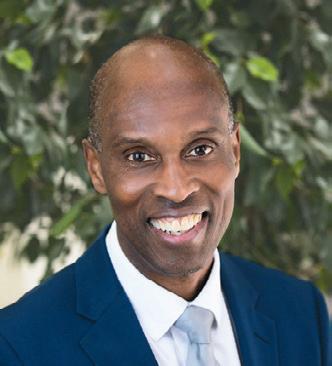
“Her work with the Illuminators, NextUp, WAFC, CGA, the Los Angeles Regional Food Bank and many other organizations, are just a few examples of her tireless commitment to service.
“I commend her for what she has done – and continues to do – for our industry and beyond.”
– Jonathan Mayes, former SVP-Chief Diversity and Inclusion Officer, The Albertsons Cos.
preparation. They’re the people I can run ideas by, seek feedback from and rely on for honest insights before a big meeting or presentation. Their support makes all the difference.
Those on my personal board, like HeeSook Alden, Lori Brown, Elizabeth Alvarez Sell, Allen Pierce and so many others – it’s been great to bounce things off of them, which helps me get prepared and boosts my confidence for meetings.
Please see page 14
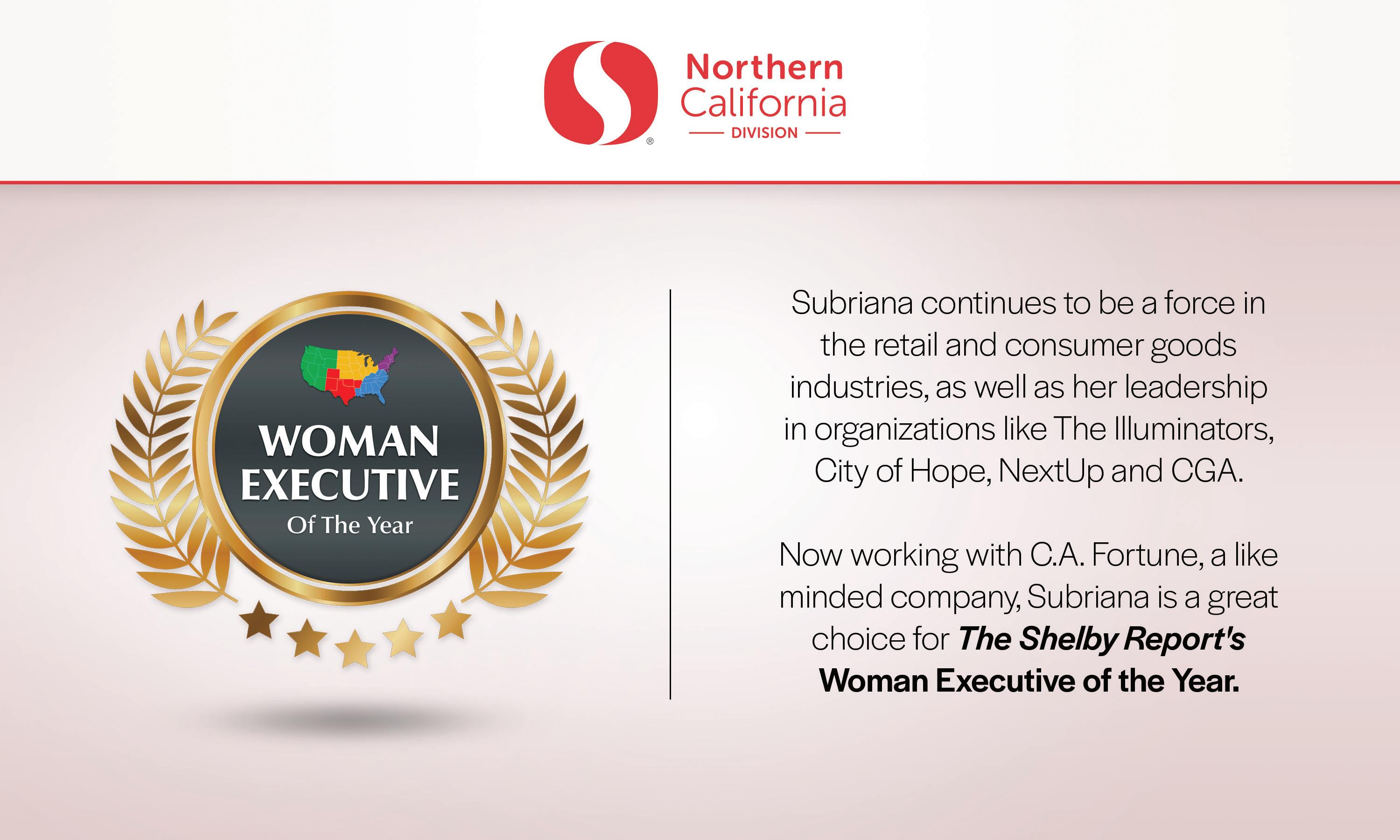
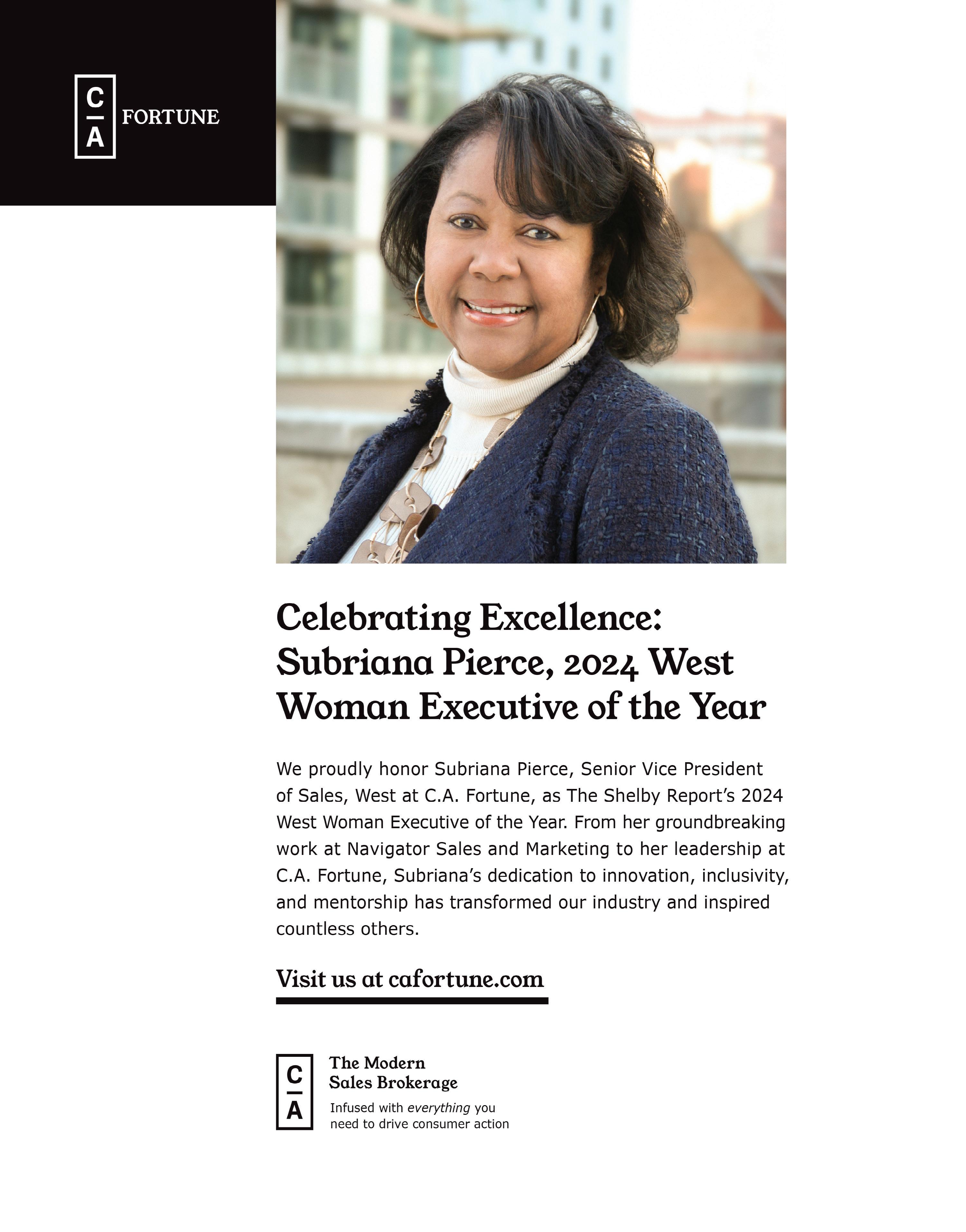
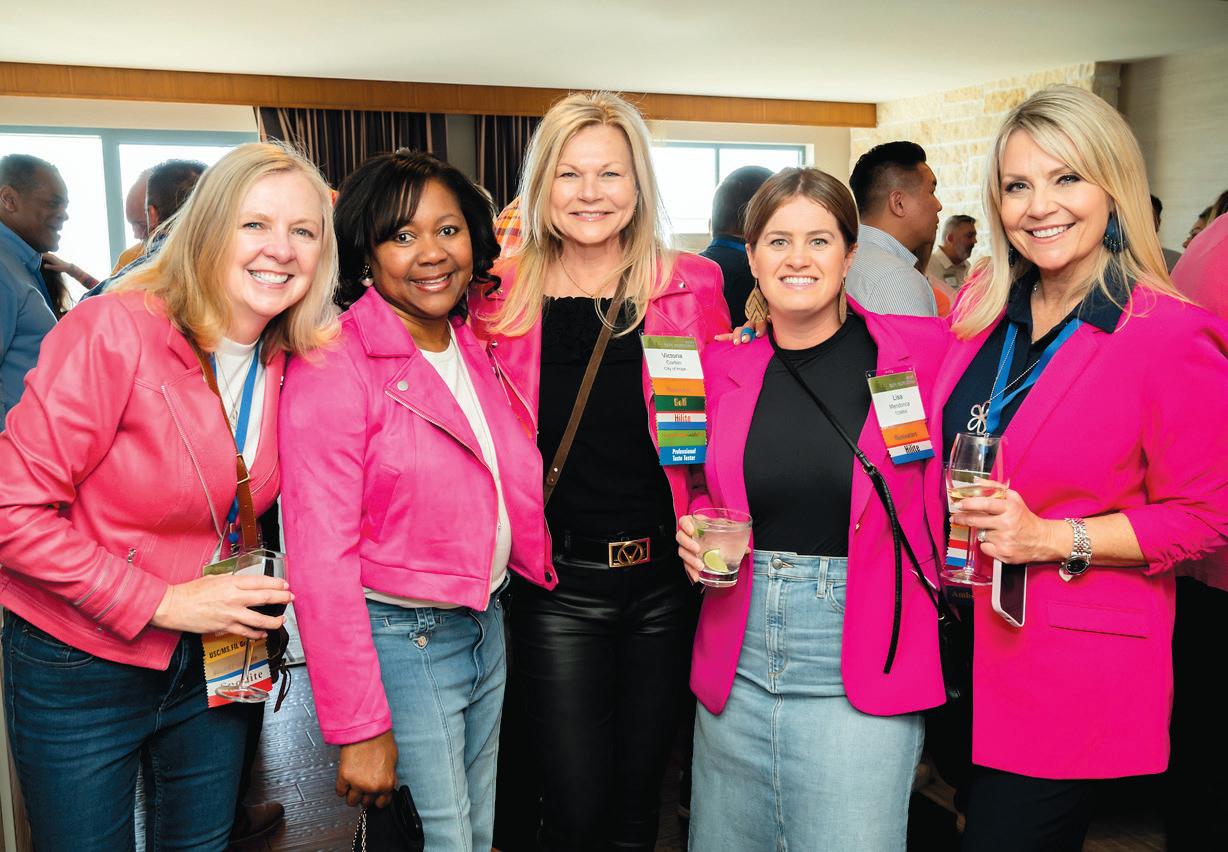
From page 12
As you know, the United States is currently facing a very important self-reckoning about race, diversity, equality and inclusion. Can you articulate to our readers a few reasons why it is so important for a business or organization to have a diverse executive team?
The top reason is diversity of thought. If everyone at the table looks and thinks the same, there’s no need for all of them to be there. Inclusion ensures that everyone has a seat at the table, fostering innovation and creativity.
Countless studies show that diverse teams are not only more innovative but also more profitable; the business case is clear. However, achieving this requires intentionality. As leaders, it’s our responsibility to open doors and keep them open, creating opportunities for all people to advance. With unwavering commitment, we can empower the next generation of leaders and ensure that access to opportunity is equitable and inclusive.
If diversity has been treated as a trend or just another forced program, the opportunity to lead with courage has been missed. Leaders have a duty to use their voice and influence to advocate for those who don’t yet have a seat at the table or who may be overlooked. True leadership means championing inclusion – not just as an initiative but as a core value.
Please see page 18
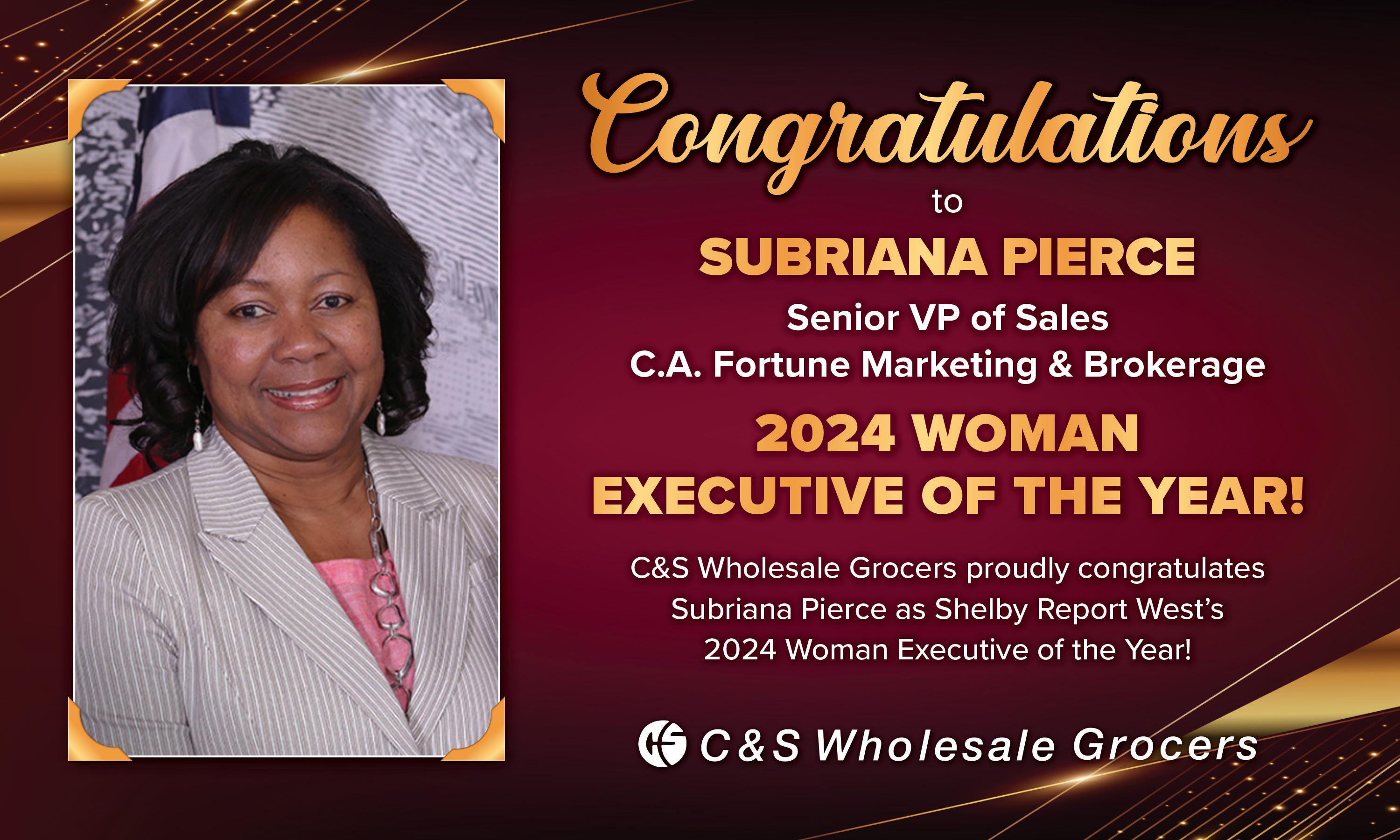
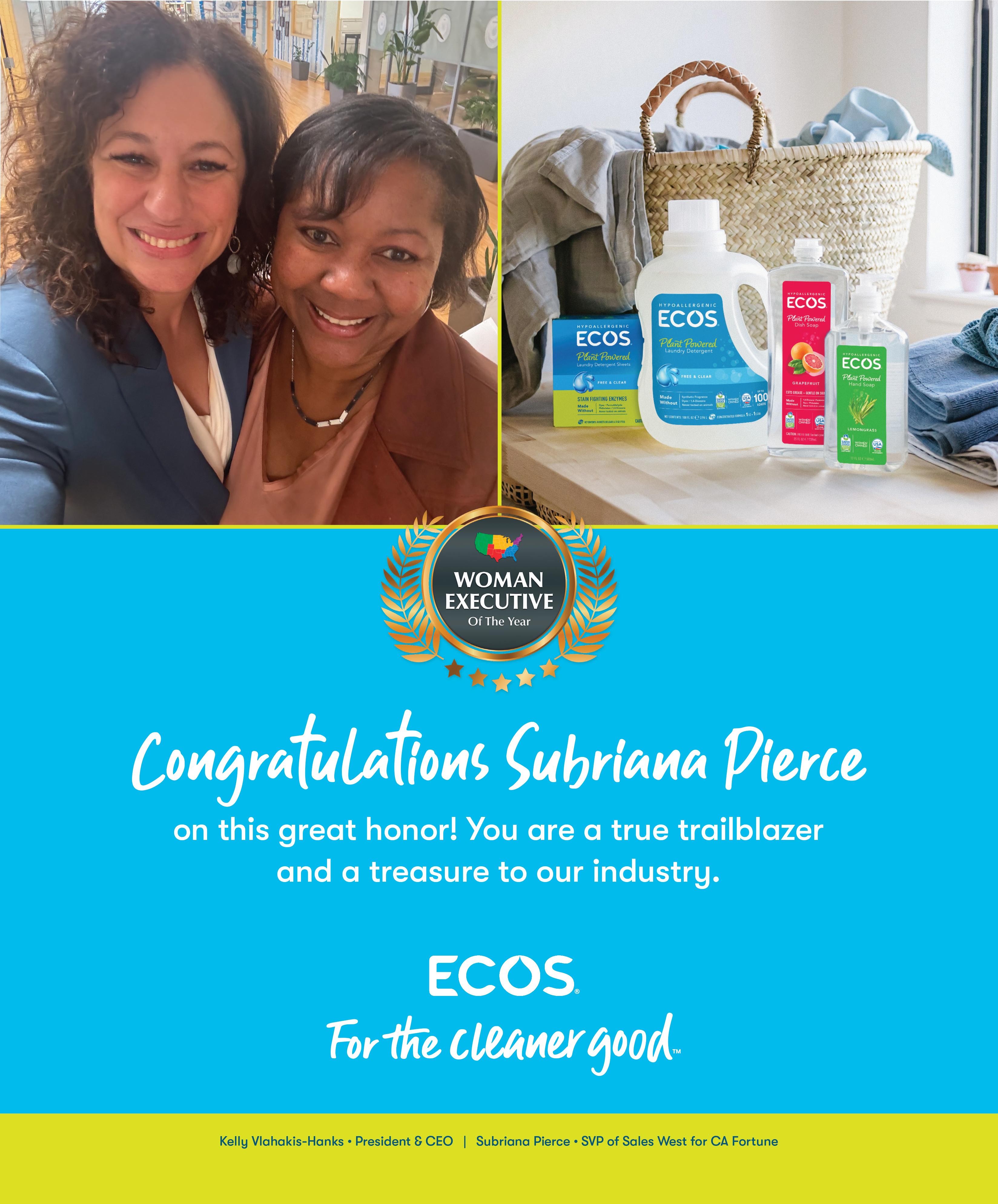
Though Subriana Pierce has resided in Southern California for nearly 15 years now, “I am a Deep South girl,” she says.
Pierce was born in the South Georgia town of Moultrie. Moves to Mobile, Alabama, and then Jackson, Mississippi, followed. The daughter of a high school vocational teacher/auto mechanic and a nurse, Pierce and her younger sister, Shannon, and brother, Stephen, were sent to Catholic school despite the cost.
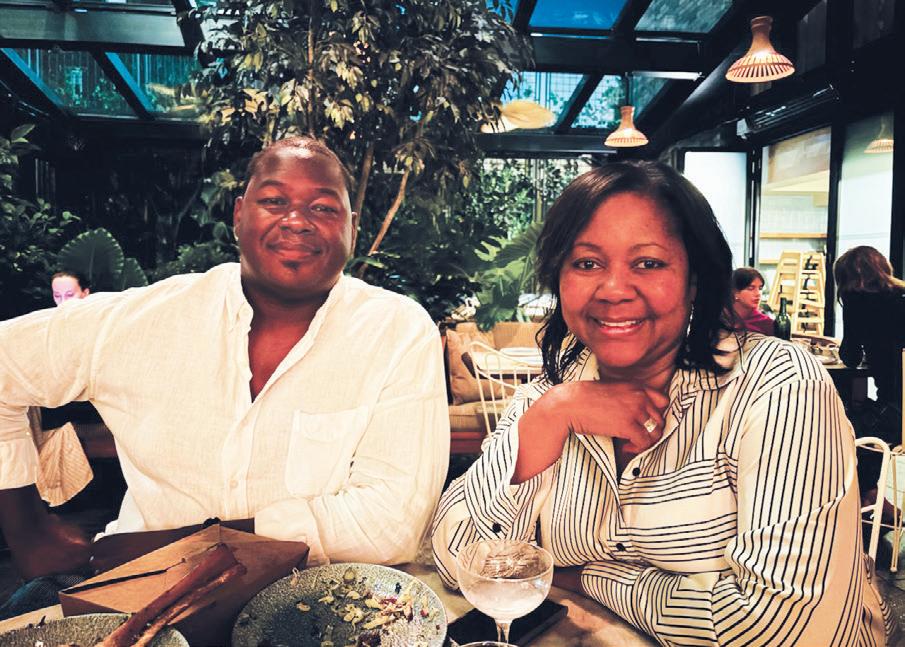
Her dad fixed cars in the evening after teaching all day in the Jackson public school system, and her mother would often work overnight nursing shifts but be home in the morning to make sure the kids had a good breakfast before school, and then be up and ready for them when they got home from school.
“I feel like I got a lot of my work ethic from [my dad] because he would just work around the clock. He’d put us to work … we’d go out in the middle of the night helping to check whether somebody’s brakes were working,” she said. “My mom, she was a hard worker, and she taught me how to be a good wife and a good mother.”
Pierce said education was (and is) a priority throughout her extended family, which is full of teachers. Her paternal grandmother had a trailer on her property in Mobile that served as a summer school for neighborhood kids. Kindergartners and first graders were invited to come and learn. Subriana attended the school at age 3 when visiting her grandmother that summer.
“I was learning everything everybody else was learning, and I had to contribute to class. I don’t care whether you’re 3 or 4 years old, if you’re in my grandmother’s class, you had to contribute,” she said.
Though Jackson, Mississippi, was not very segregated in the 1970s while Pierce was growing up – segregation there was more economic than racial, Pierce said – she did have a scary situation arise with her best friend who lived across the street. Her friend was white, and one day when her friend’s father discovered Subriana and his daughter playing in their house, her friend’s mother had to shield Subriana from his wrath. And that’s just one example.
“It’s not easy to shrug off,” Pierce said. “It’s easy for people to say, ‘Well, don’t worry about it. That was just that one person.’ But that was the life we lived in.”
In spite of experiences like that, or perhaps because of them, Pierce was driven to succeed. She excelled academically through the years, and her extracurricular activities included dance, volleyball, church youth group (she did mission work at age 14) and clubs of all kinds. Pierce always felt she needed to be an officer in every club she joined, perhaps an early indicator of her drive to be a leader – or her competitive spirit, which she retains to this day.
Before her father allowed her to go off to Spelman College in Atlanta, he made sure Subriana knew how to maintain her car – change the oil, change a tire, replace the brake pads, etc. At Spelman, a historically Black women’s college, she majored in economics and minored in dance. She had the highest grade-point average of her graduating class in the economics department.
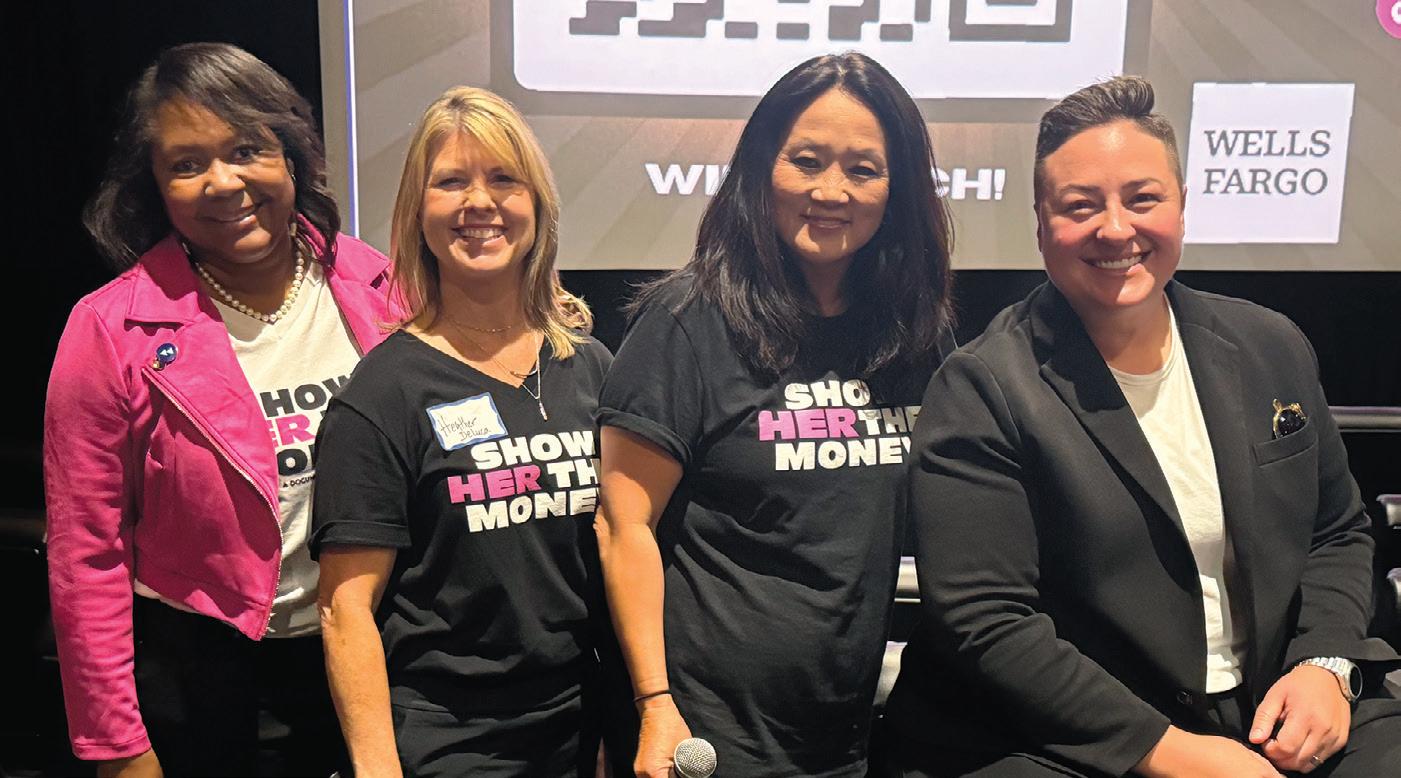
She recalls a sign on campus that said the school was for “women who change the world.”
“You’re taught that the whole four years that you’re there, and when I think back on it, that got into my psyche,” Pierce said. “I came out of school saying I’m going to be a CEO of a company. That was it. Didn’t know what company, didn’t know what industry, but I wanted to lead and be a catalyst for change.”
Mission accomplished. After a number of roles in both retail grocery and CPG, she and her husband Allen Pierce founded a food brokerage firm in 2014, Navigator Sales and Marketing, and Subriana served as CEO. (The company was sold to C.A. Fortune last year, with Subriana staying on as SVP.)
They’re working on changing the world, too. The Pierces created the Navigator Lighthouse Foundation to coach, mentor and train those working to get their products onto grocers’ shelves.
And they’ve done the hard but rewarding work of raising six kids along the way, some of whom are working in the grocery industry. A couple also are on the autism spectrum, placing the Pierces in yet another advocacy role. They want people to understand that while those on the spectrum have learning differences, they also have unique strengths that should be celebrated.
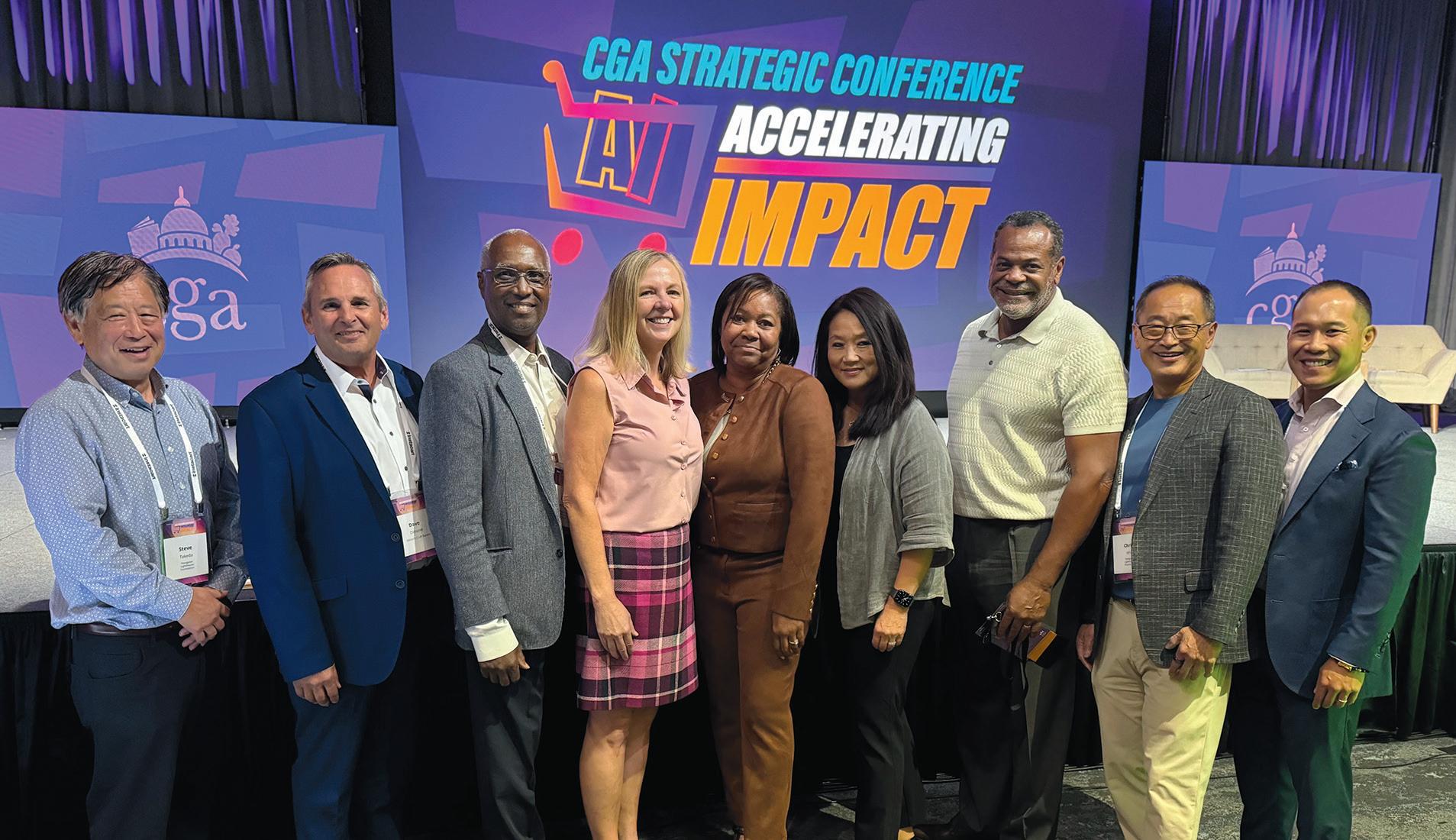
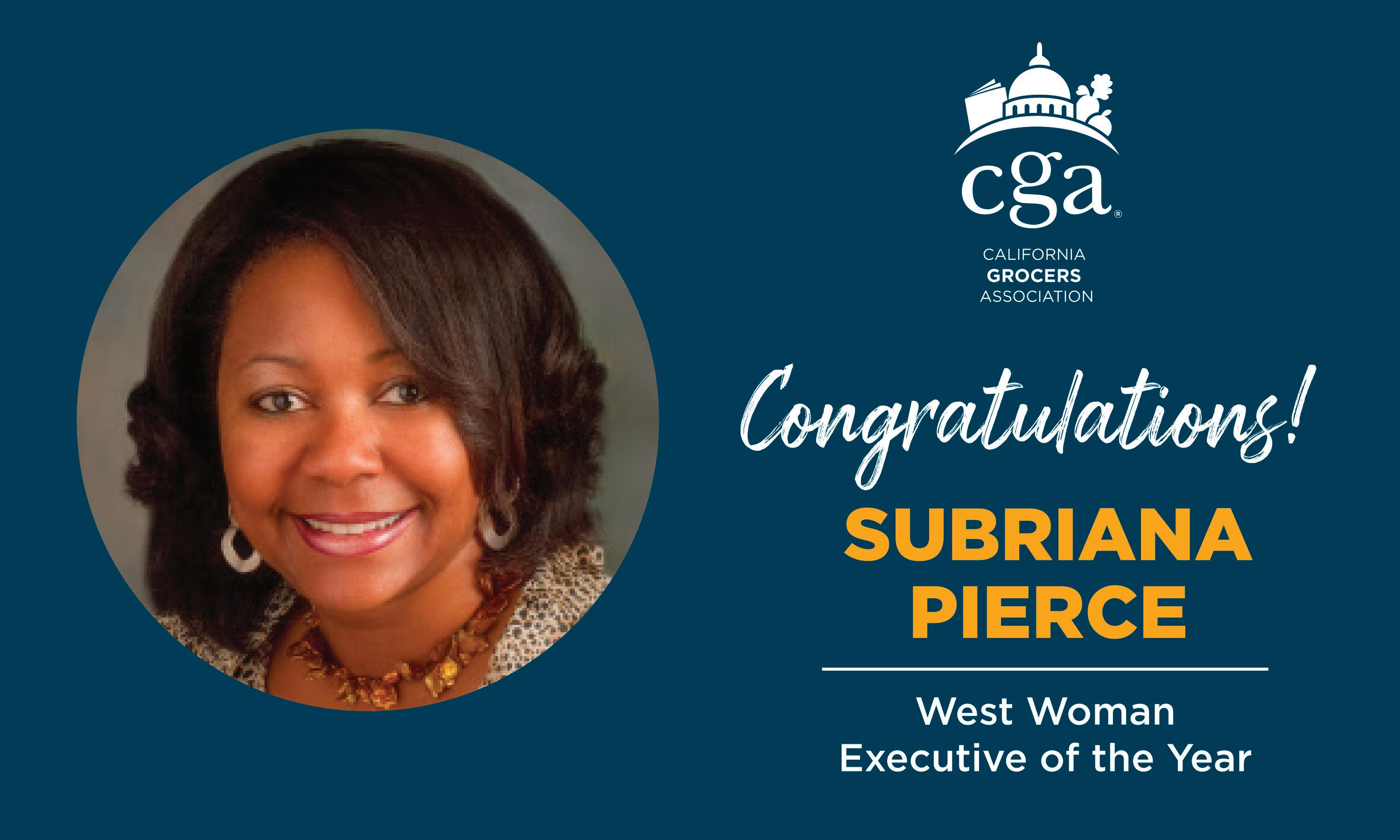
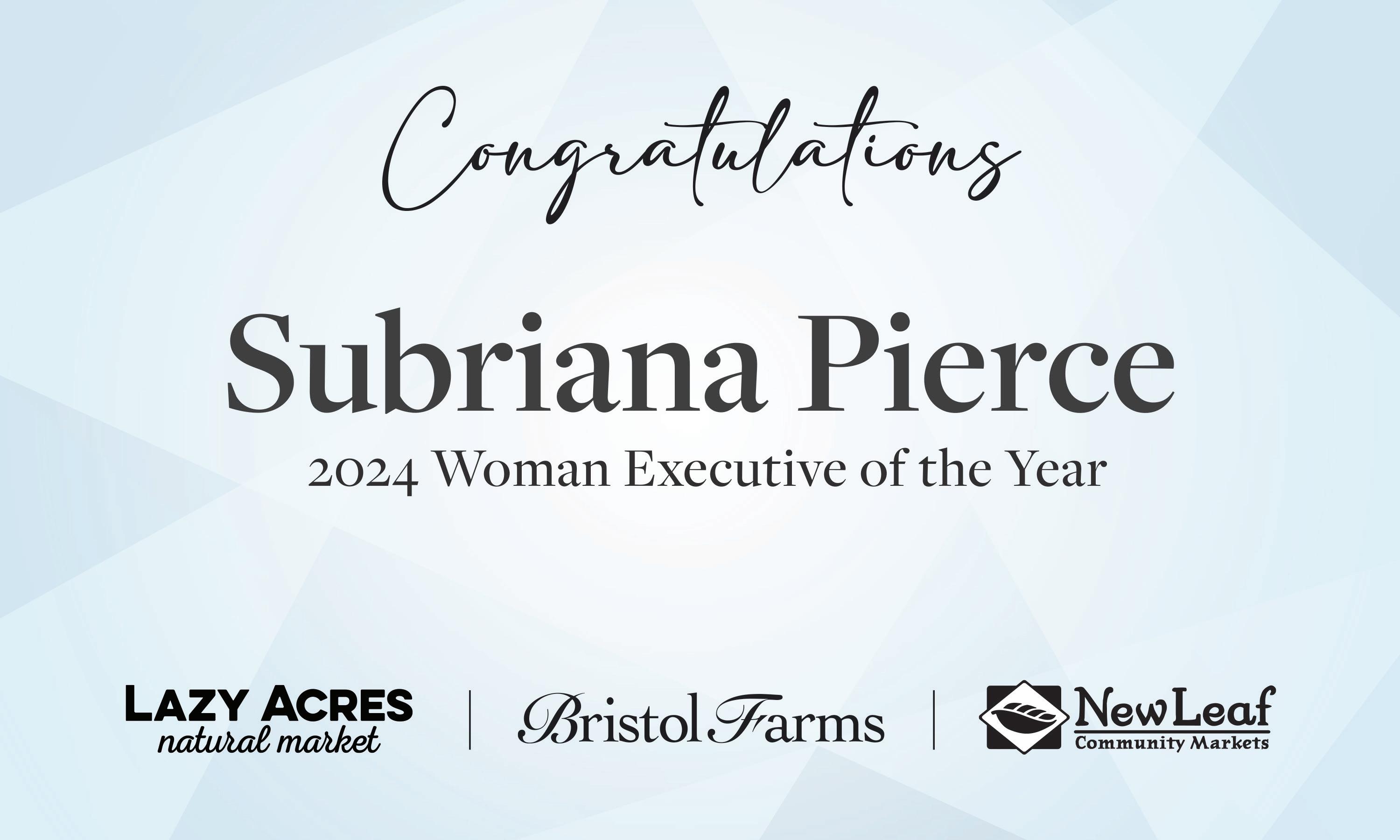
From page 14
As a business leader, can you please share a few steps we must take to truly create an inclusive, representative and equitable society? Kindly share a story or example for each.
1. Recognize the need for change and inclusion
The first step is acknowledging the importance of inclusion and the need for it. As a leader, if you don’t genuinely believe in fostering an inclusive environment, any efforts you implement are likely to fail. Everyone comes to the table with a unique journey and perspective; respecting those journeys is crucial.
For instance, I’ve had the privilege of sharing the film “Show Her the Money” with the industry, which highlights that only 2 percent of venture capital funding goes to women. A woman-owned brand trying to break into retail has likely faced unique challenges in building her business, and we must recognize and address those disparities. Ask yourself: Does your company have barriers, and what are you doing to dismantle them?
2. Be purposeful in building a diverse team Diversity doesn’t happen by chance – it requires intentionality. There’s no “Build it and they will come” approach to creating a diverse team. Leaders must
“I have one claim to fame in life – I am the person that convinced Subriana Pierce to come out to California and join the Albertsons So Cal team. That’s right, I got her to take that first step, and she’s been an industry powerhouse ever since she hit the West Coast.
“Subriana has many different skills that have led to her continued success. It’s hard to keep the list short, but there are five things that I believe set her apart.
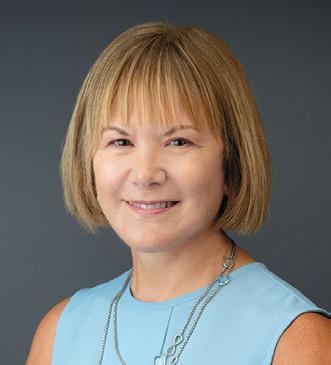
“First, she is an active listener; she takes time to understand where people are coming from and reacts accordingly. Second, she is a tireless warrior that never stops working on behalf of her team and her clients. Third, she is an authentic leader that connects to others with both her head and her heart. Fourth, she champions belonging, diversity and inclusion all day, every day. And lastly, she’s smart – wicked smart. If you want to match wits with her, you’ll likely lose.
“Selecting Subriana as the 2024 West Woman Executive of the Year is a brilliant choice. Her servant leadership and can-do attitude make her an unstoppable force.”
– Sue Klug,
independent
board director
proactively review their hiring strategies and expand their outreach.
I reflect on my own journey as a graduate of an HBCU (Historically Black College/University). My internships and first job came because a corporation expanded its recruiting efforts to include my school. Some of the brightest minds in the country are at institutions like Spelman College, yet they remain untapped by companies that recruit from the same schools year after year. If you only fish in the same pond, you’ll keep catching the same fish.
Please see page 20
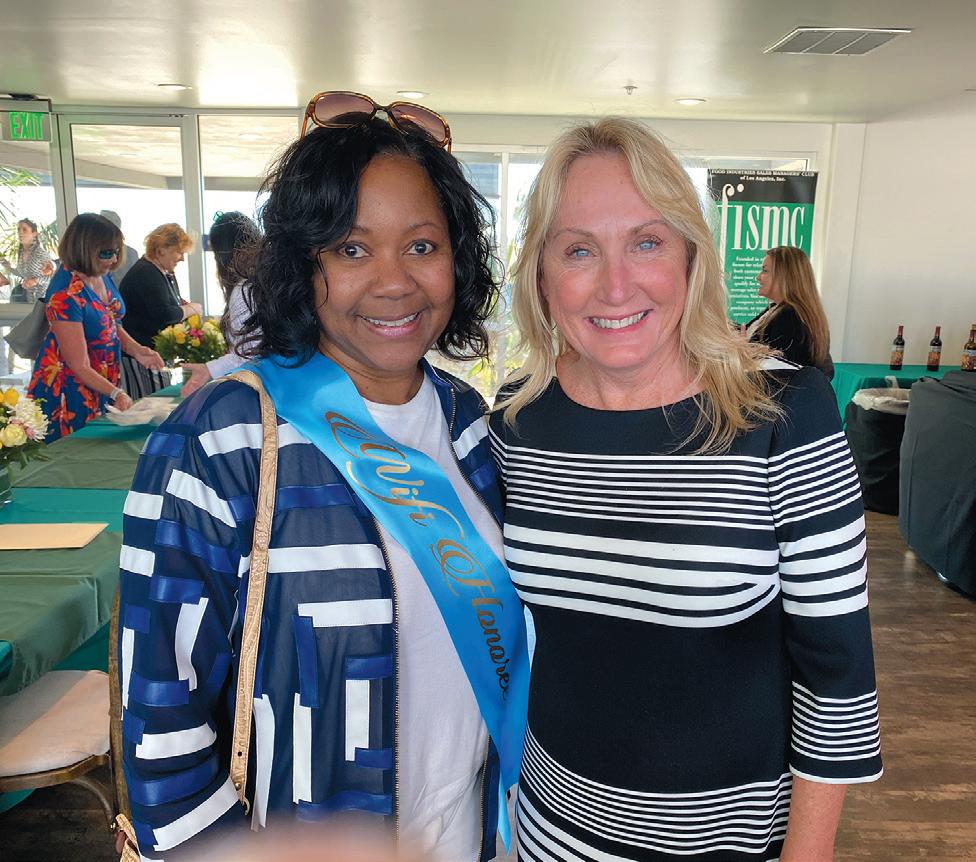

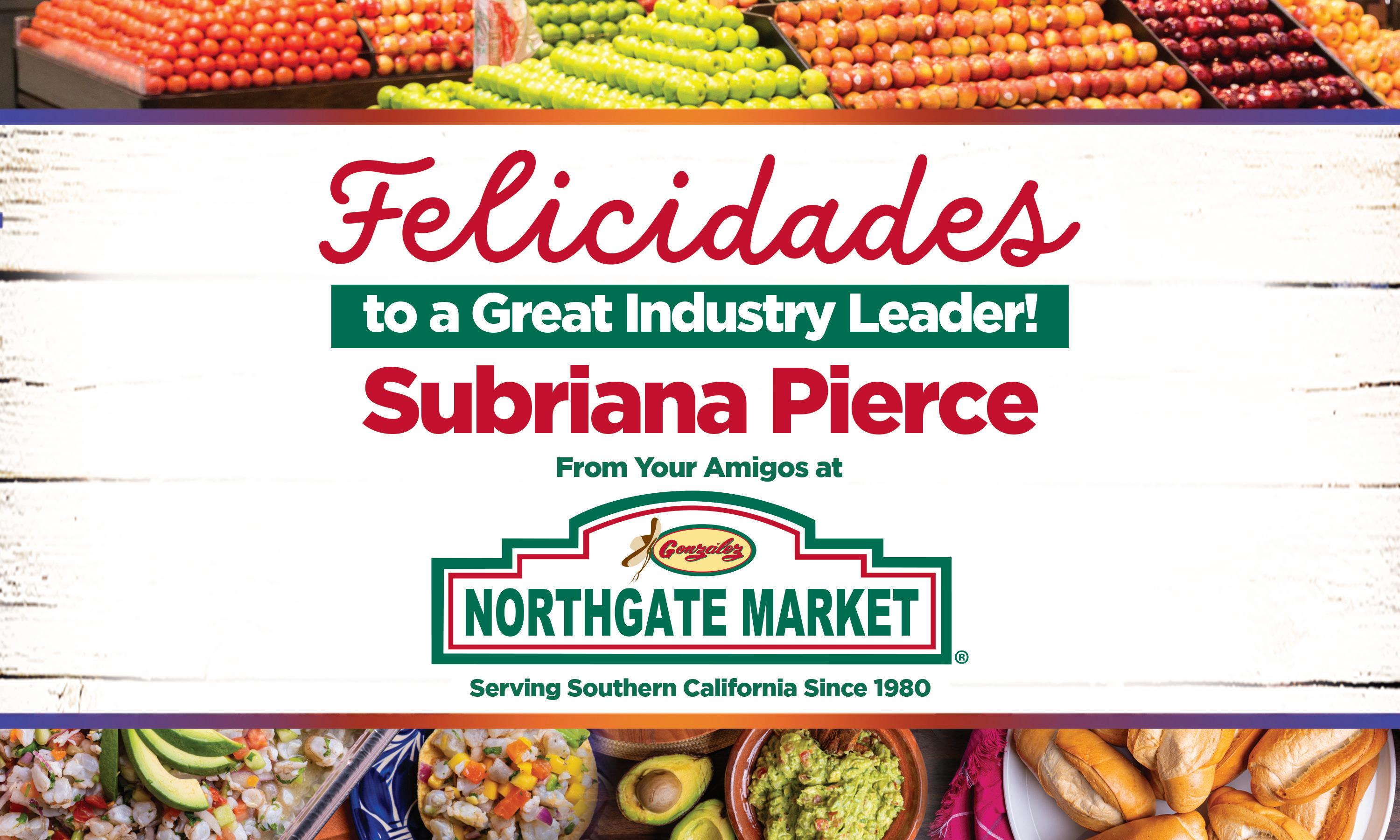
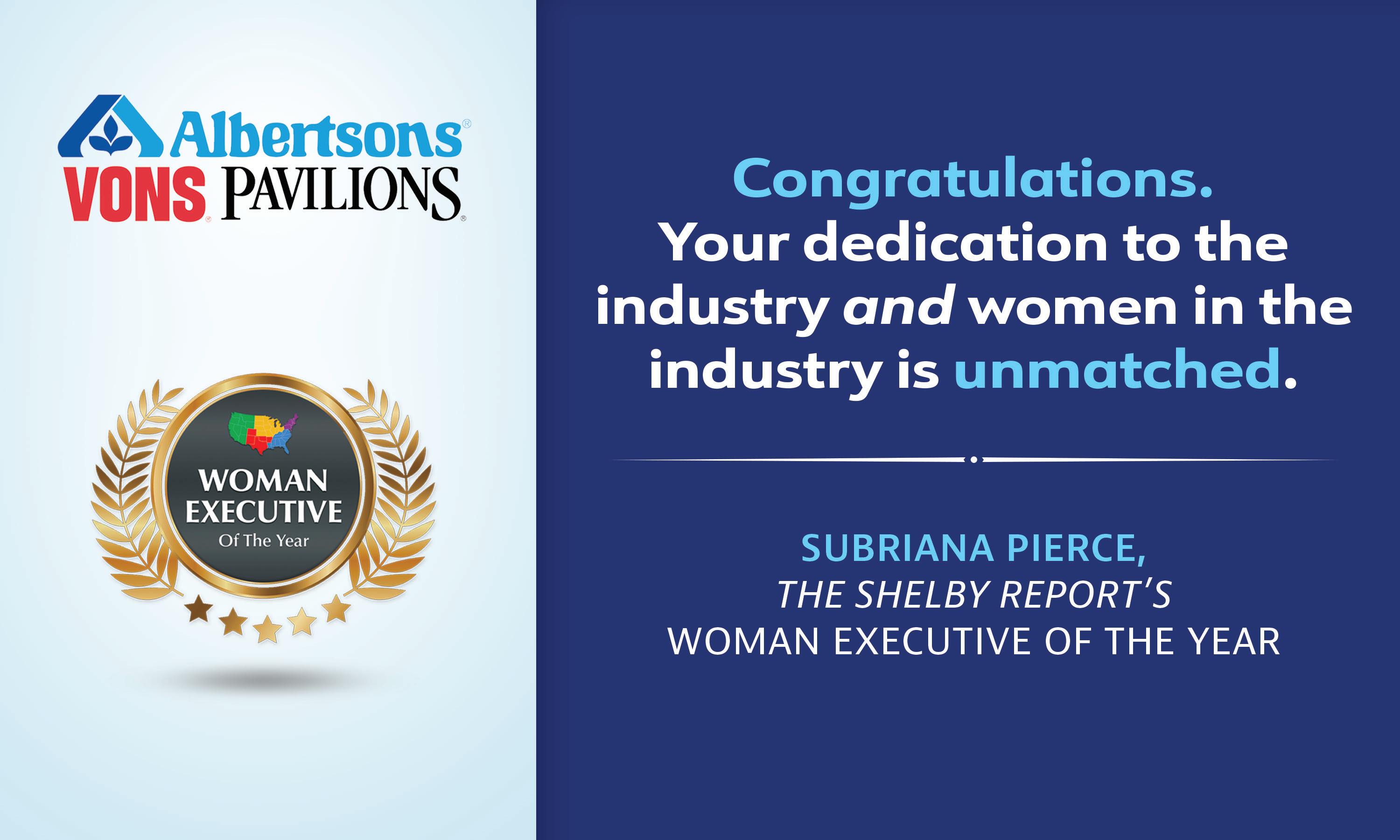
3. Collaborate as an industry
Inclusion isn’t a solo mission – it’s something we can tackle together as an industry. For example, organizations like the California Center for Equality and Justice (CCEJ) provide resources and opportunities to make a difference.
On a personal level, I’ve been grateful for the support from manufacturers and retailers for my foundation, the Navigator Lighthouse Foundation (www. navigatorlighthousefoundation.org). Our mission is to coach, mentor and train underrepresented emerging CPG founders, and we’re committed to breaking down barriers. By leaning into organizations like these, we can unite as an industry to create meaningful, lasting change.
An executive focuses on setting the vision, aligning the organization’s strategy with its goals and making decisions that drive long-term success. Unlike other leaders, an executive’s role involves looking at the bigger picture, managing risk and ensuring the organization’s culture, values and priorities stay on course while empowering others to execute effectively.
What are the myths that you would like to dispel about being a CEO or executive?
A common myth about being a senior leader in an organization is the assumption that you have everything figured out or that leaders are expected to know everything. The truth is, leadership is a continuous journey of learning and growth. It’s crucial to embrace transparency, show vulnerability and remain open to new ideas and challenges.
is to keep learning and pushing yourself to grow. Leadership isn’t about knowing it all – it’s about staying curious and committed to improving.
What is the most striking difference between your actual job and how you thought the job would be?
I am honored to serve as SVP at C.A. Fortune, a company that acquired the business my husband and I built over the last 10 years. Joining a new organization and leading a new team has been an incredible journey.
After nearly 11 years as an entrepreneur, I wasn’t sure how I would feel returning to the corporate world, but it’s been the complete opposite of what I expected. The associates are incredibly driven, and I feel deeply engaged, knowing I can truly make a difference. Having a voice in this environment is something that’s really important to me.
C.A. Fortune has cultivated a culture of inclusivity and entrepreneurship that keeps us nimble and gives everyone a voice. Our values are rooted in innovation, solution-driven leadership, empowerment, curiosity and always doing the right thing. I’m passionate about customer service and thrilled to help drive sales results From page 18
Thank you for those insights. Let’s now jump to the primary focus of our interview. Most of our readers – in fact, most people – think they have a pretty good idea of what a CEO or executive does. But in just a few words, can you explain what an executive does that is different from the responsibilities of the other leaders?
I strongly encourage taking advantage of the many learning opportunities available in our industry, such as the USC Food Industry Management or Executive programs, or the Food Industry Management Certificate programs. I had the privilege of attending the USC Food Industry Executive Program and, while it was challenging, it was also transformative.
No matter where you are in your career, the key
Please see page 22

“I’m thrilled Subriana is the recipient of this year’s Woman Executive of the Year. I feel fortunate to have worked with her for many years, most recently in our respective roles at The Illuminators and WAFC. Through these experiences, I’ve developed so much respect for her as an industry leader, and no one deserves this recognition more.
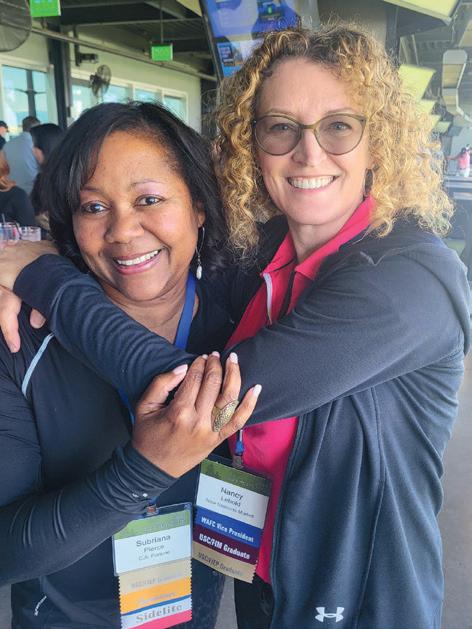

“Subriana leads with versatility, clarity and integrity while inspiring those around her with infectious positivity. She’s deeply committed to developing our industry’s workforce and continually champions continued education, having completed USC’s Food Industry Executive Program herself several years ago. Additionally, Subriana creates inclusive spaces for all and advocates for diversity – a passion we share, and a necessity for our complex and evolving business environment.
“At her core, Subriana is a coach and collaborator. She has a gifted ability to hone in on each individual’s collective strengths, building high-impact teams along the way. I consider myself privileged to be a part of the community she’s fostered, and I’m proud to have her as both a colleague and a friend.”
– Nancy Lebold, CEO, New Seasons Market
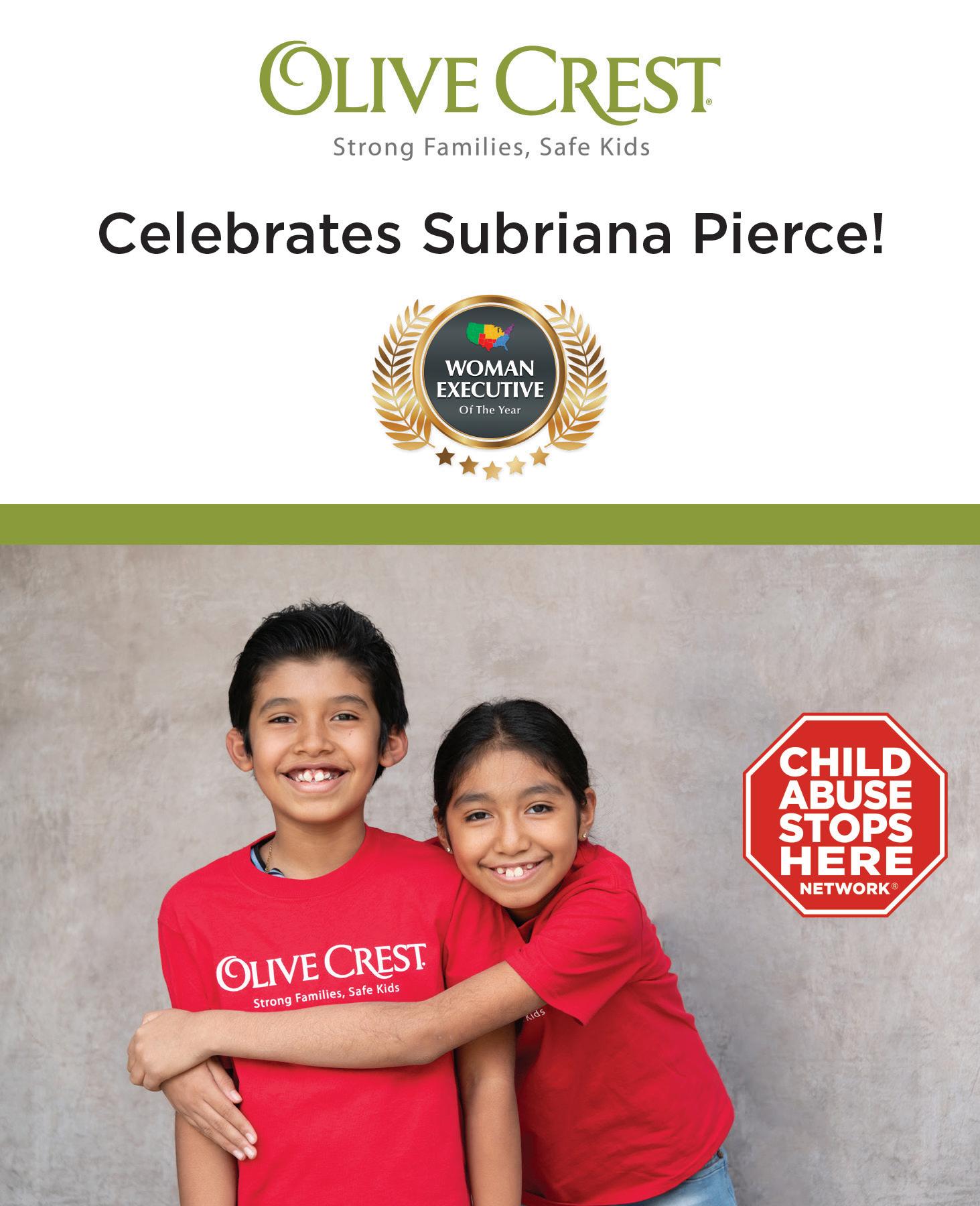
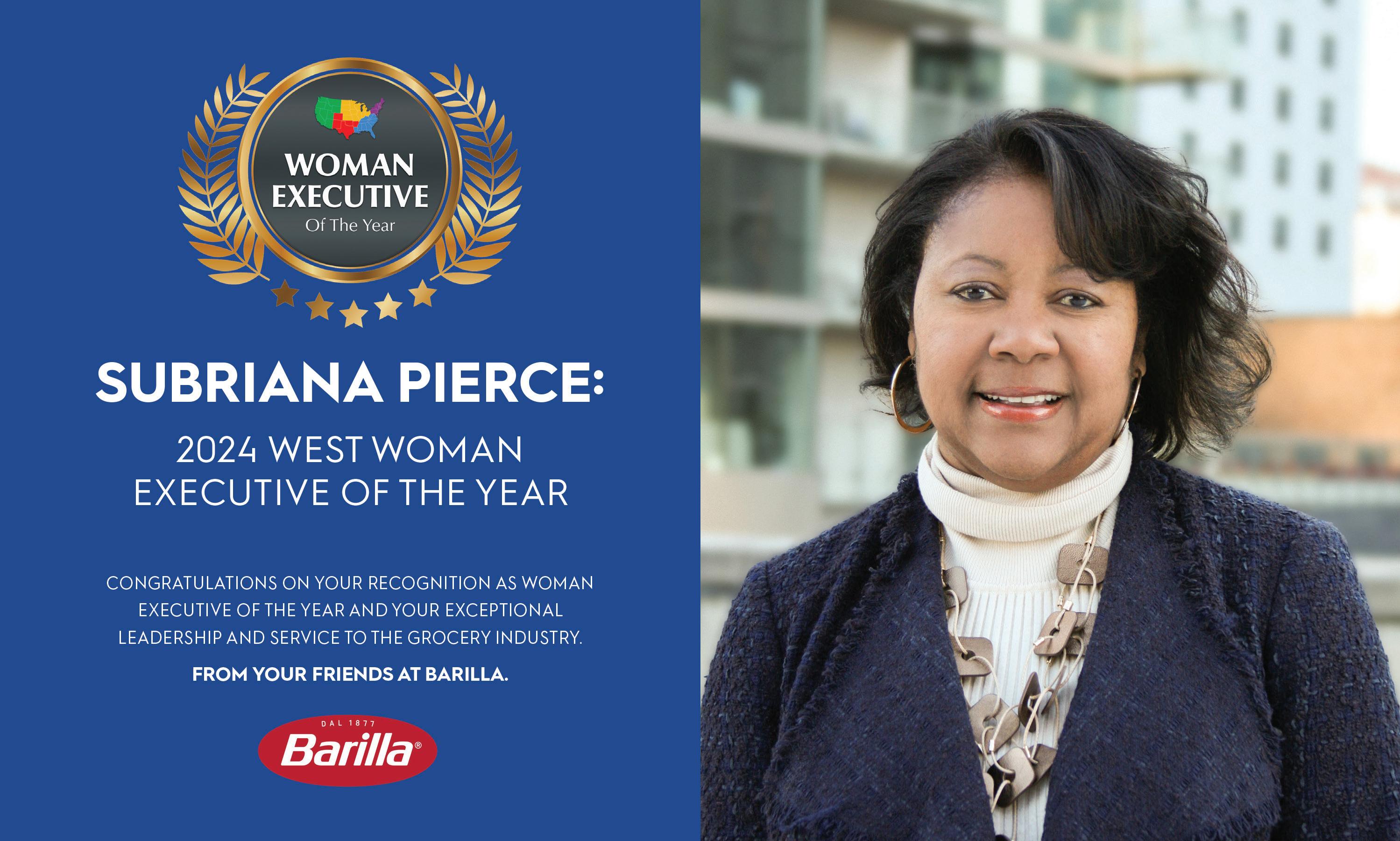
From page 20
for our clients – there’s nothing more rewarding than that. It’s been a better cultural fit than I could have ever imagined.
In your opinion, which specific traits increase the likelihood that a person will be a successful executive and what type of person should avoid aspiring to be an executive?
I’m always cautious on titles. I think anyone has the potential to grow and develop leadership skills, but everyone might not desire or aspire to be an executive. The skills needed for an executive are:
⚫ Strategic thinking: Executives must think longterm, anticipate challenges and align goals with organizational objectives.
⚫ Decision-making: They need to make critical decisions, often with incomplete information, and take responsibility for the outcomes.
⚫ Leadership: Effective executives inspire, motivate and guide teams to achieve goals.
⚫ Emotional intelligence: Empathy, self-awareness and interpersonal skills are crucial for managing relationships and fostering collaboration.
⚫ Resilience: Handling stress, setbacks and high levels of responsibility is essential.
⚫ Expertise: Many executives have deep industry knowledge and a track record of success in their fields.
But while not everyone will become an executive, leadership opportunities exist at many levels. People can lead in various capacities – team leads, project managers or thought leaders – without taking on formal executive roles.
Success and fulfillment can come from excelling in roles aligned with one’s strengths and passions, whether or not that path includes becoming an “executive.”

After Subriana Pierce earned her MBA at the University of Chicago, she started working for Jewel-Osco. She had done an internship at Dominick’s during her studies, opening up a path in the grocery business.
At Jewel, she entered a corporate training program for those with a master’s degree. They would be fast-tracked through different jobs in the store over a nine-month period – cashier, night crew, store departments – and then manage a department. Pierce was given the choice of bakery or produce to manage. This was the early 1990s, when there were few female produce managers, so that was immediately appealing to Pierce.
“I chose produce and loved it, loved it,” she said.
She then moved to the corporate office as a buyer and category manager.
She flipped over to the manufacturer side next, moving to Atlanta for a position with Campbell Soup Co., running category management for the Kroger team for three and a half years until June 1999. A role as a Kroger team leader with Frito-Lay in Atlanta followed, where she spent a little over three years.
Pierce then joined the sales organization for Frito-Lay in Dallas, where the snack company is based. She spent five years in sales, followed by a couple of years as senior director of marketing.
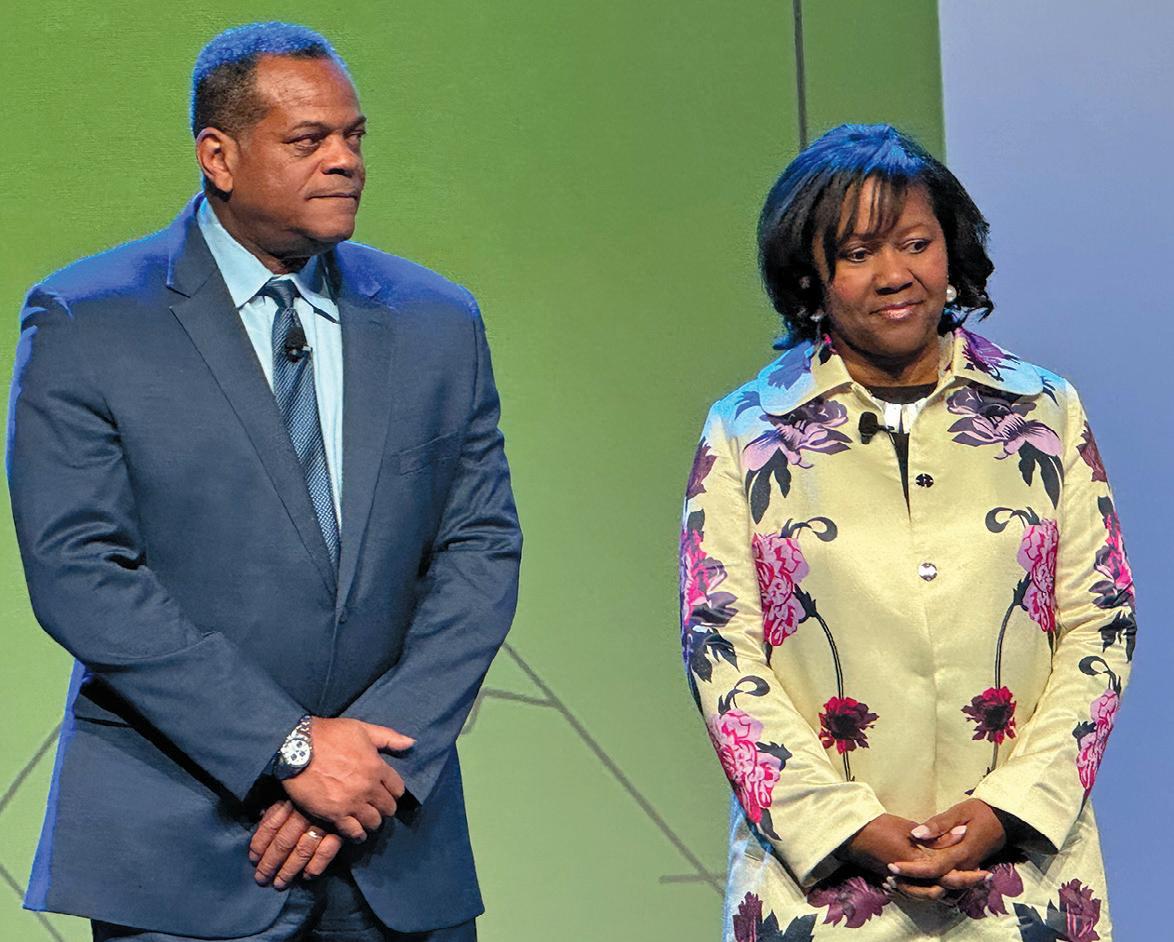
Pierce went back to the retail grocery side in early 2010. She moved to Southern California to join the Supervalu organization, which was joined up with Albertsons at the time, after she was approached by Albertsons Southern California President Sue Klug, who has been a mentor of Pierce’s ever since.
“One thing I learned as I kept going through corporate was it’s always less about a title and more about the work,” she said. “I want to be in a position where I can effect change. I want to be in a position where I can lead people. I want to be in a position where I can develop people.
“As I was coming up through my career, it hit me that I’m not chasing a title; you’ve got to chase peace and be at peace with what you want to do in life, and it’s not a title … I just naturally love to sit people down and say, ‘All right, what do you want to do next in your career? And how can I help you get there?’ I have literally met people at dinner parties that I’ve done that with, so that’s just natural for me.”

How have you used your success to make the world a better place?
I hope that my voice in advocating for inclusion has been heard and that I serve as an ambassador for fairness and equality. In 2020, amid the civil unrest in our country, my husband and I founded the Navigator Lighthouse Foundation. Our goal was to be a beacon of hope for those who felt disconnected and lacked access.
We assembled a highly skilled board of directors to guide entrepreneurs through the complexities of the grocery industry, finance, marketing and more. In partnership with organizations like CGA, we’ve helped bring initiatives like the Pitch Slam event to the forefront at the convention, creating new opportunities for industry access and distribution. With many retailers supporting us, we are providing access.
Our mission is to make a meaningful impact on the next generation of entrepreneurs in our industry –empowering one founder at a time. I hope that we are being a blessing in our industry and our community.
Please see page 24
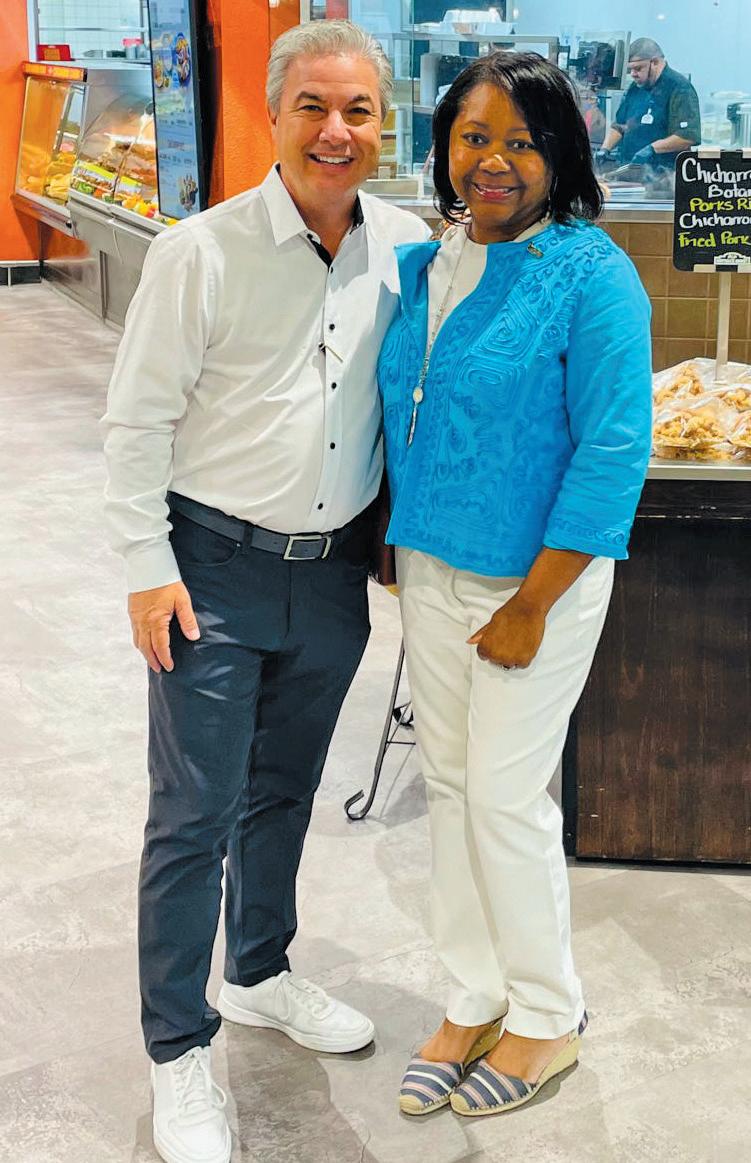
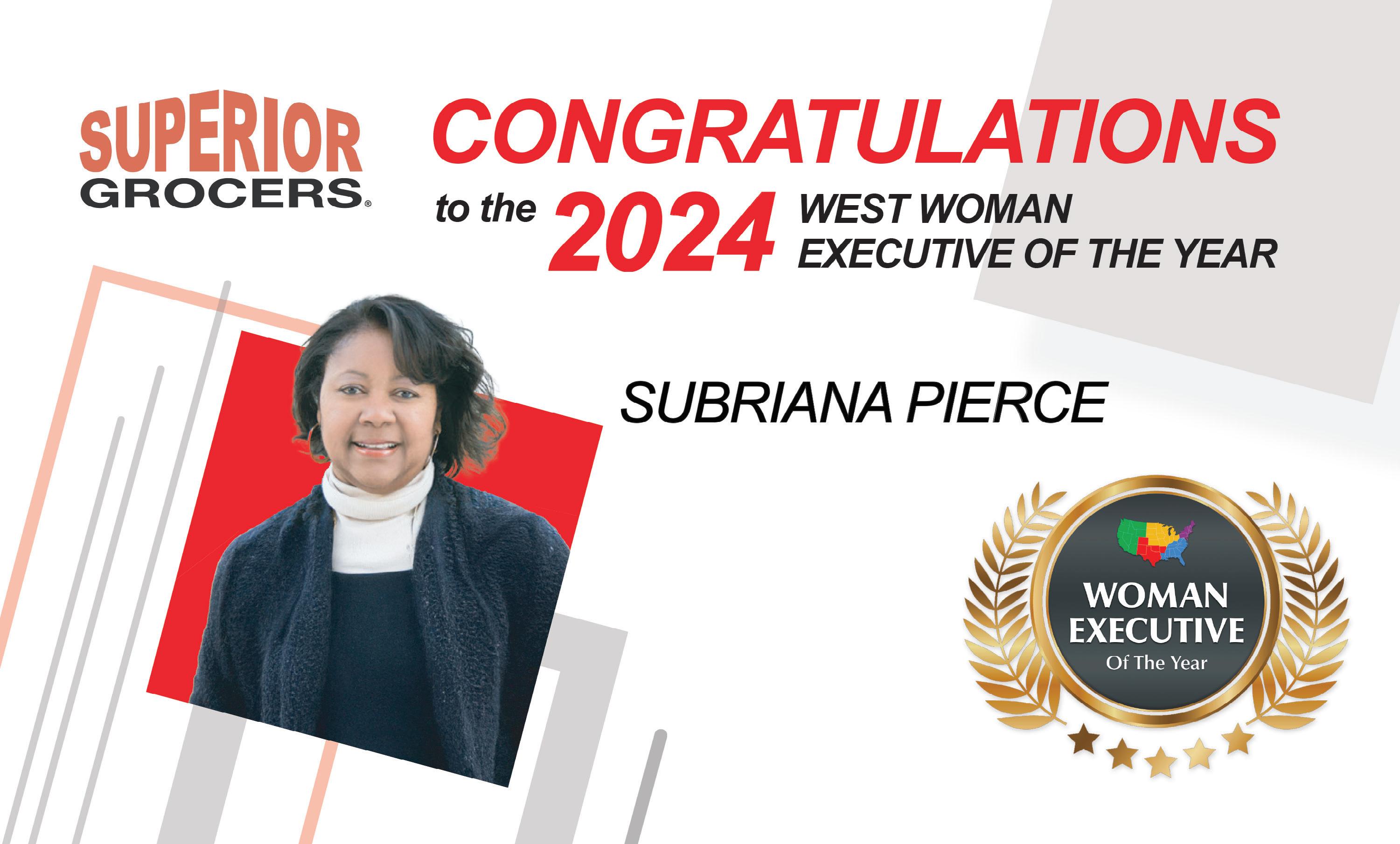
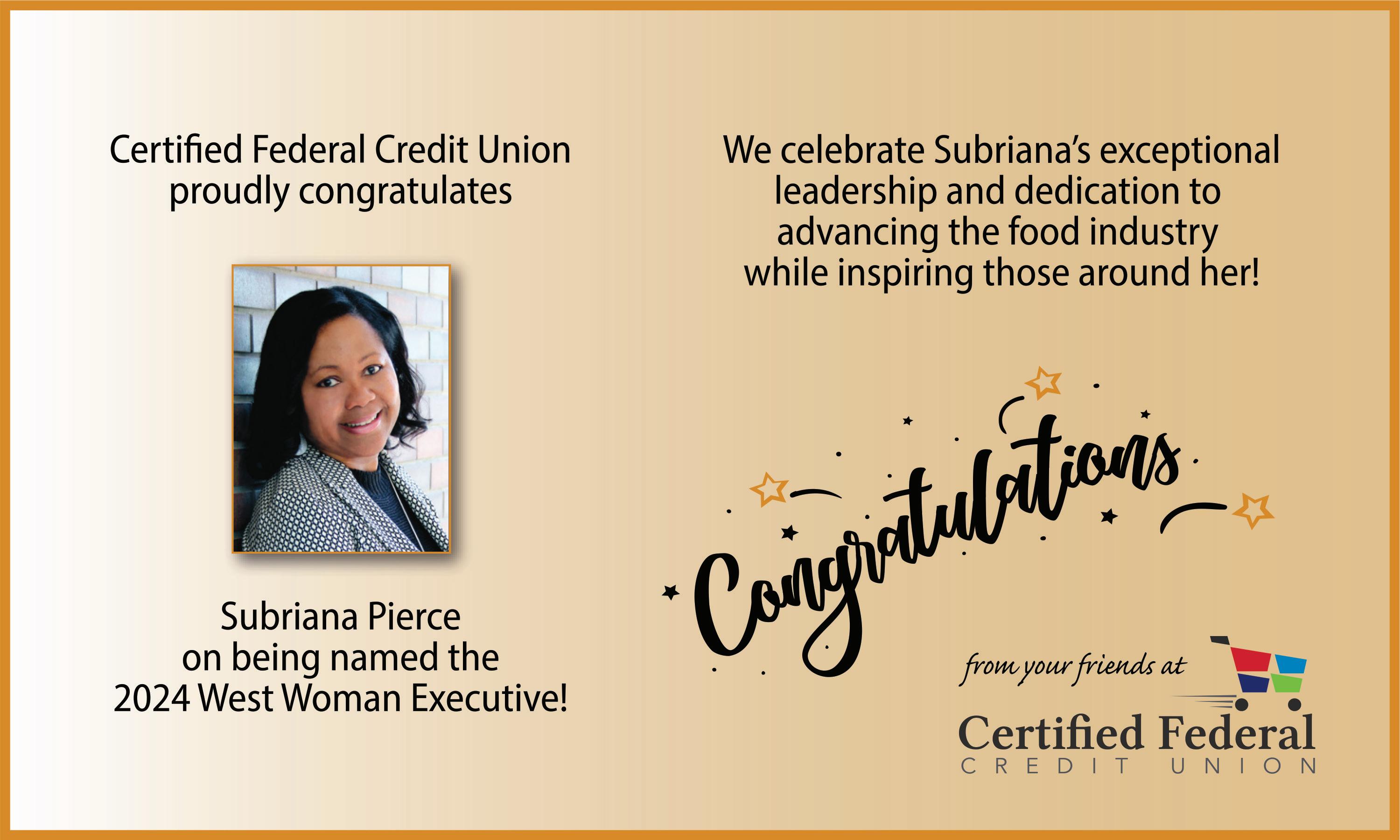
From page 22
What are your “5 Things I Wish Someone Told Me Before I Started” and why? Please share a story or example for each.
1) Performance alone isn’t enough. Performance is important, but it’s just the baseline. Early in my career, I worked tirelessly, giving 110 percent, yet when promotions passed me by, I asked my boss why. He told me, “No one knows you.” I had spent so much time with my head down, focusing on the work, that I never took the time to get exposure within the organization.
2) Gain exposure. This became my next focus. I started volunteering for projects, attending company events and making myself visible. That helped me build recognition and connections in the organization.
3) There is power in relationships. This brings me to my third point: the importance of relationships in our industry. Organizations like Illuminators and NextUp have been instrumental in helping me build a network of relationships that will last a lifetime. Now, I can pick up the phone, ask for an introduction and have someone make that connection for me. That’s the power of a solid network.
4) Continuous learning is vital. After earning my
‘Knows
MBA a few years after undergrad, I thought I was done with education and could focus solely on my career. But I’ve learned that career growth is about continually pushing yourself for more education, more experiences and more opportunities for growth.
5) It’s OK to fail. Finally, it’s important to embrace failure. Early in my career, I was often too risk-averse, hesitant to push boundaries. However, I’ve learned that some of my most valuable lessons have come from mistakes, not just successes. Failing can be a crucial step toward growth.
You are a person of great influence. If you could inspire a movement that would bring the most amount of good for the greatest number of people, what would that be? You never know what your idea can trigger.
Movement: “Learn Differently, Grow Together”
Core Mission: To create a world where learning differences are recognized, valued and embraced as essential elements of diversity. The goal is to ensure that all people, regardless of how they learn, have equitable opportunities to succeed, innovate and thrive.
Please see page 26
“The consummate professional, Subriana is the ideal recipient for this honor. Her keen knowledge of our industry is second to none, and she continues to ignite brands and companies through her powerful guidance and mentorship.
“Countless industry leaders continue to recognize her talents and have immense respect for her perspective and decisive insight. She knows no limits and destroys barriers for everyone around her.
“Subriana is a results-oriented executive who never fails to lead with the very human aspect of our business front of mind. She is a fierce competitor, servant leader and genuinely good human.

“I am truly honored to call her my colleague and friend, and I will always have her on my personal board of directors because the perspective she provides in all areas of work and life is best in class.”
– Kendra Doyel, VP of Merchandising,
Fred Meyer

‘Hungry, passionate and driven’
Subriana currently serves as the SVP of salesWest for national brokerage and marketing agency C.A. Fortune, following the acquisition of her own company, Navigator Sales and Marketing.
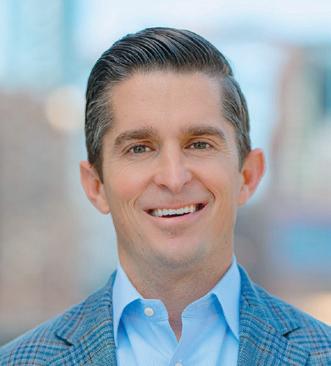
“This acquisition was a perfect fit for Subriana because, like her, C.A. Fortune creates custom-tailored solutions with consumers at the center of every strategy. The C.A. team is hungry, passionate and driven – the same principles Subriana lives by.”
‘Sundays for us was church and the Cowboys’
Subriana Pierce is a Dallas Cowboys fan.
She spent most of her childhood in Jackson, Mississippi, where the closest NFL team geographically was the New Orleans Saints. But back in the 1970s, the Dallas Cowboys promoted themselves as “America’s Team,” and her family got on board.
“Sundays for us was church and Cowboys. And my mom would have everything in blue and silver,” Pierce recalled.
She ended up in Dallas with Frito-Lay, having joined the company in its Atlanta division, and thought that she and Allen would finish out their careers there.
Their plans changed, but not her allegiance to the Dallas Cowboys.

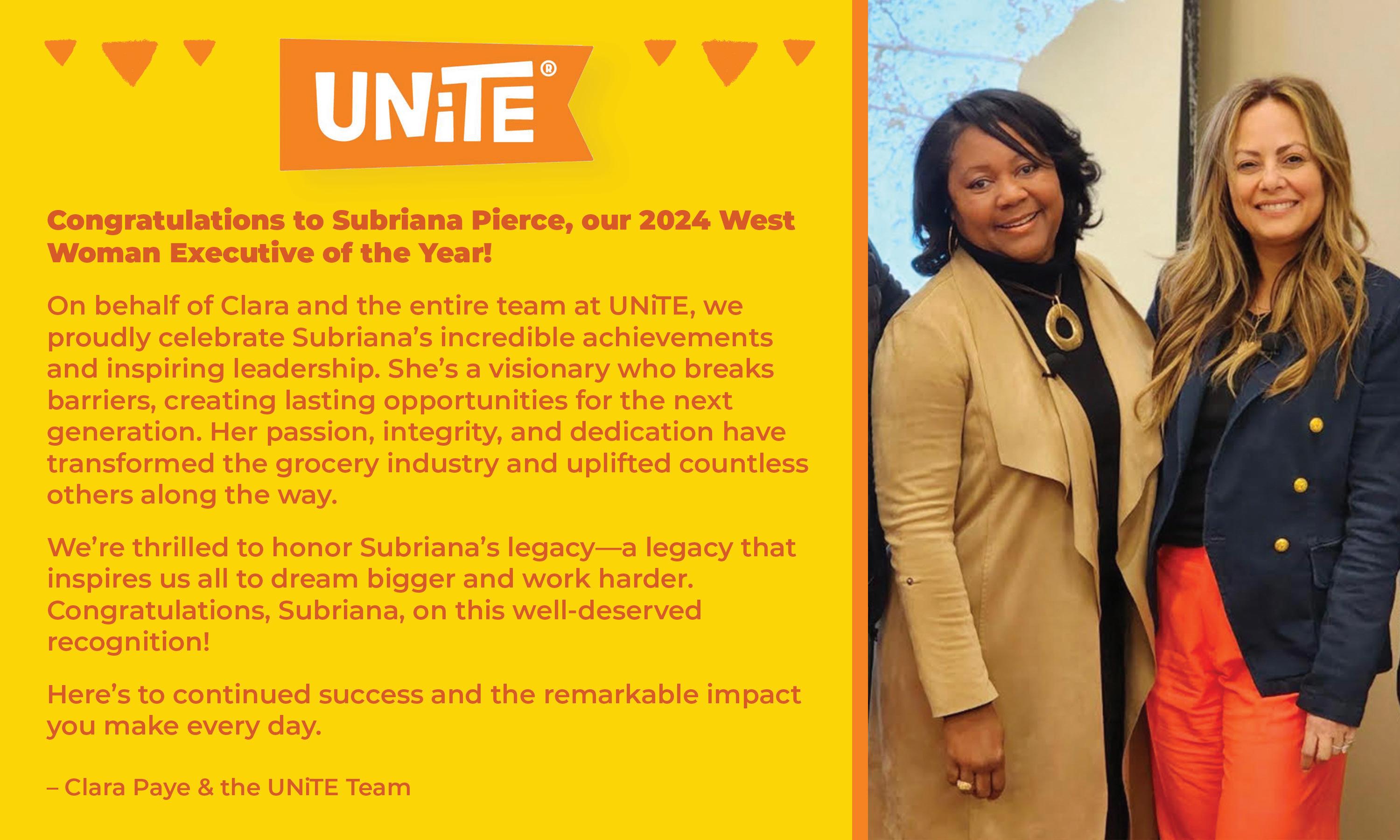
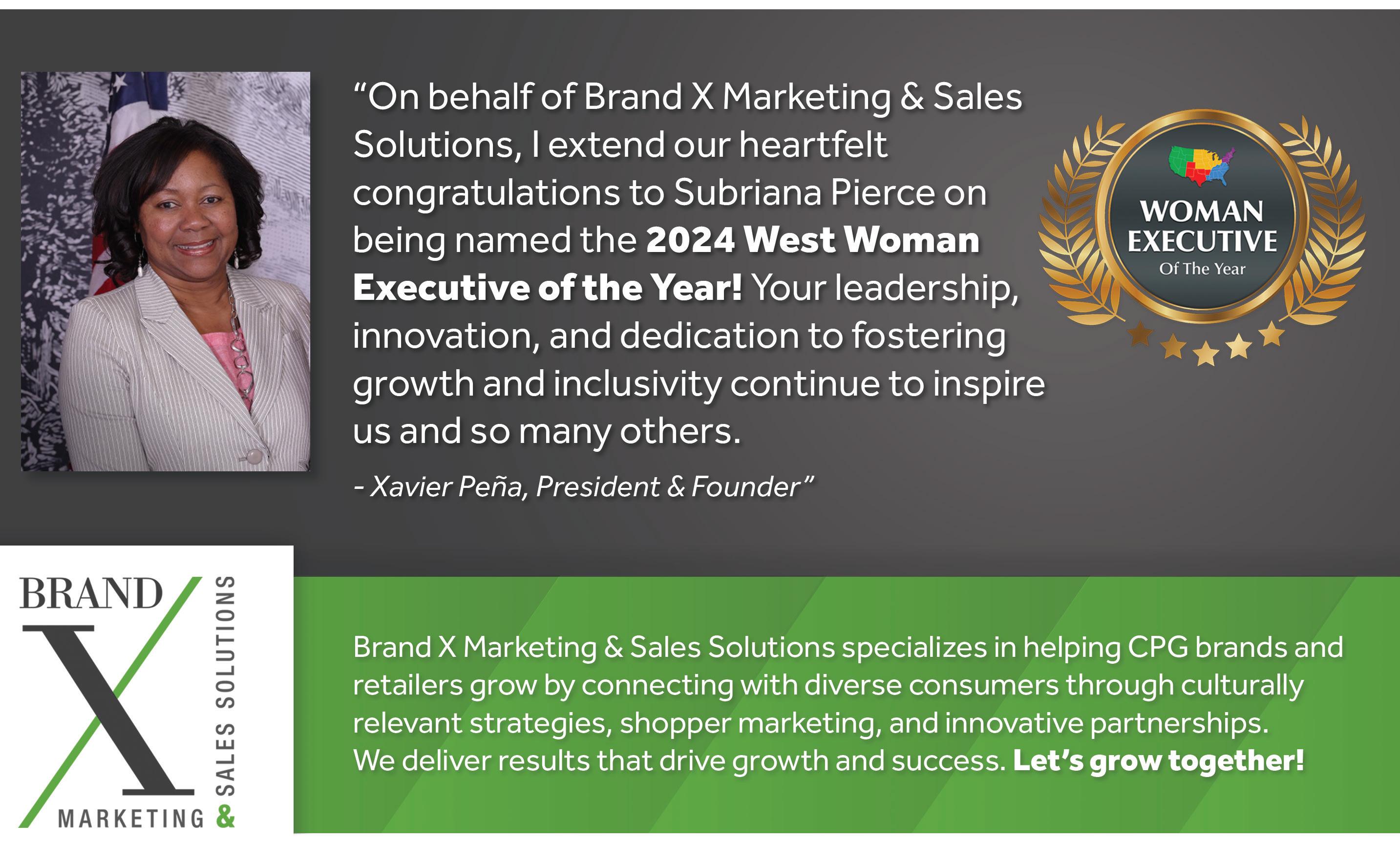
As a parent of children on the wide spectrum of autism and learning differences, this mission is deeply personal for me. Over the past 20-plus years, I’ve witnessed their hearts, resilience, work ethic and brilliance. Yet, I’ve also seen the misunderstanding and stigma they face because many people don’t fully comprehend or appreciate their unique strengths. Raising awareness about learning differences is not just a passion; it’s a necessity.
Can you please give us your favorite “life lesson” quote? Can you share how that was relevant to you in your life?
My favorite life lesson quotes come from Martin Luther King Jr., and they tie together beautifully:
“Life’s most persistent and urgent question is, ‘What are you doing for others?’” and
“The truest way to be happy is to seek happiness for others.”
“From her work with The Illuminators and CGA Board of Directors to building a thriving company, Subriana is one of those industry figures that just seems to be everywhere. As I’ve come to know her better over the last several years, I’ve continued to marvel at her energy, passion and industry know-how.
“Subriana is in a lot of rooms, and every one of those rooms is all the better for her presence. She is a fantastic leader whose perspectives impact every corner of the grocery community she touches.
“I can truly say her foundation’s work to give a hand-up to emerging, diverse and women-owned brands has been a boon to grocery store shelves.
“Subriana, congratulations on this well-deserved honor and achievement.”
–
Ron Fong, President and CEO, California
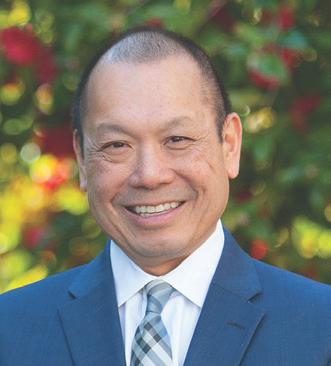
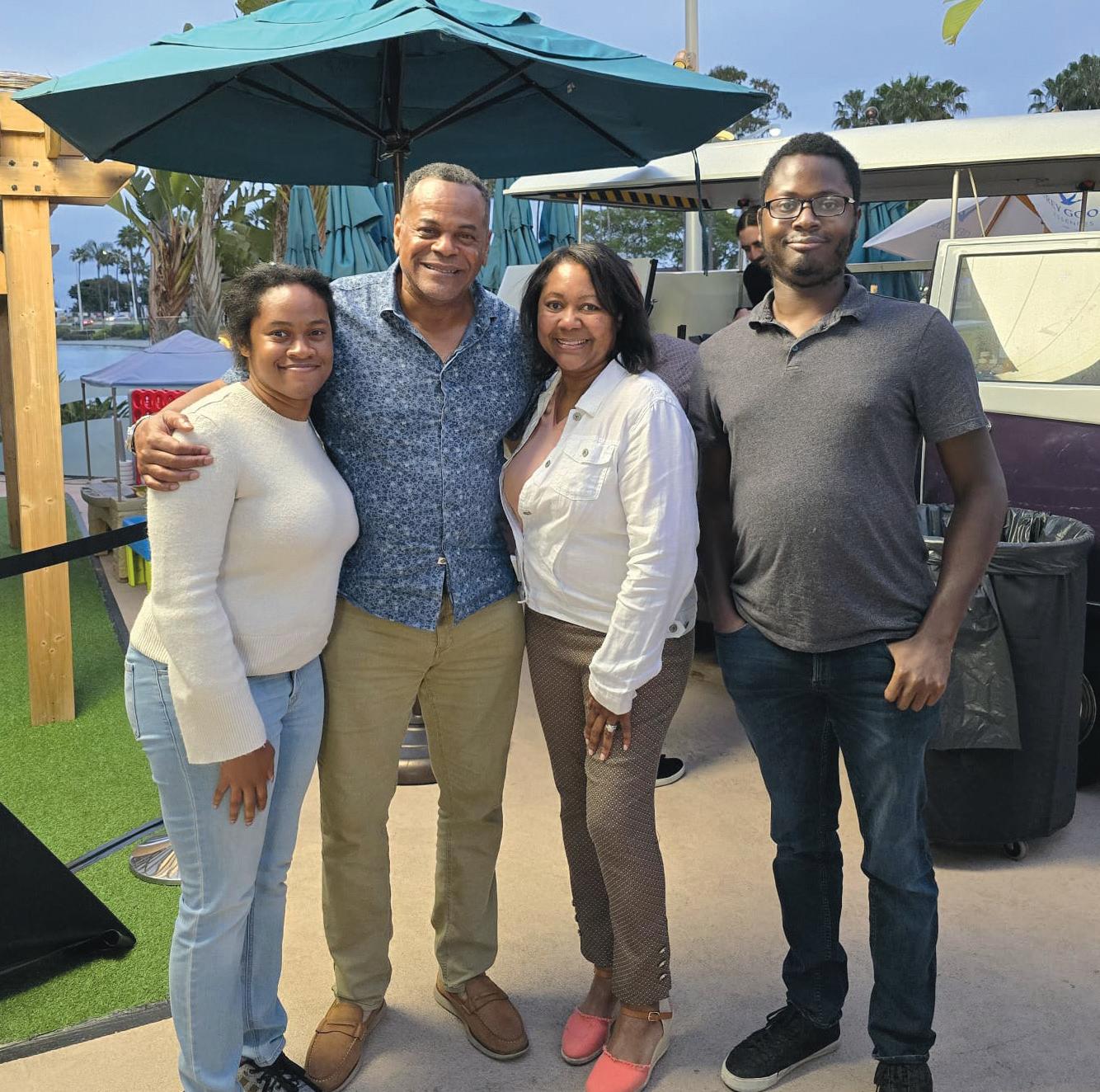
These quotes resonate deeply with me, and I strive to embody them in everything I do. For me, being a servant leader means focusing on how I can contribute to others – whether it’s through mentorship, sharing opportunities or making a difference in my community or industry.
As a child growing up, my parents always taught me the power of helping others. My alma mater, Spelman College, has as its mantra “A Choice to Change the World.” I hope my actions serve as a model to those behind me, encouraging them to focus on the wellbeing of others. True fulfillment, I believe, comes when we seek to uplift and empower those around us.
We are very blessed that some very prominent names in the food industry will read this. Is there a person anywhere in the world with whom you would love to have a private breakfast or lunch, and why? He or she might just see this if we tag them.
Roz Brewer. She and I met years ago, but she has no idea how much I have admired and followed her career and leadership since then. There aren’t a lot of AfricanAmerican female executives in this industry, so she was the one I modeled my career after.
She attended Spelman College a few years before me, pledged the same sorority as I did on the same campus, worked for CPG like I did, worked for retailers such as Sam’s Club and Walgreens (as CEO). She has ranked as one of the top women in business for many years.
She is now serving as interim president of our alma mater, Spelman College, which is being the ultimate servant leader to an institution that gave us both so much. I would love to connect with her. Roz, let’s do lunch!
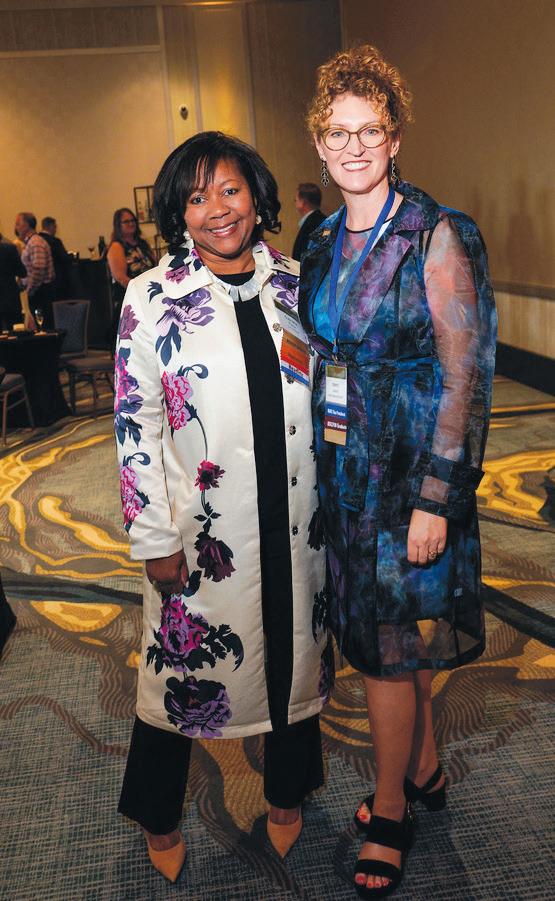
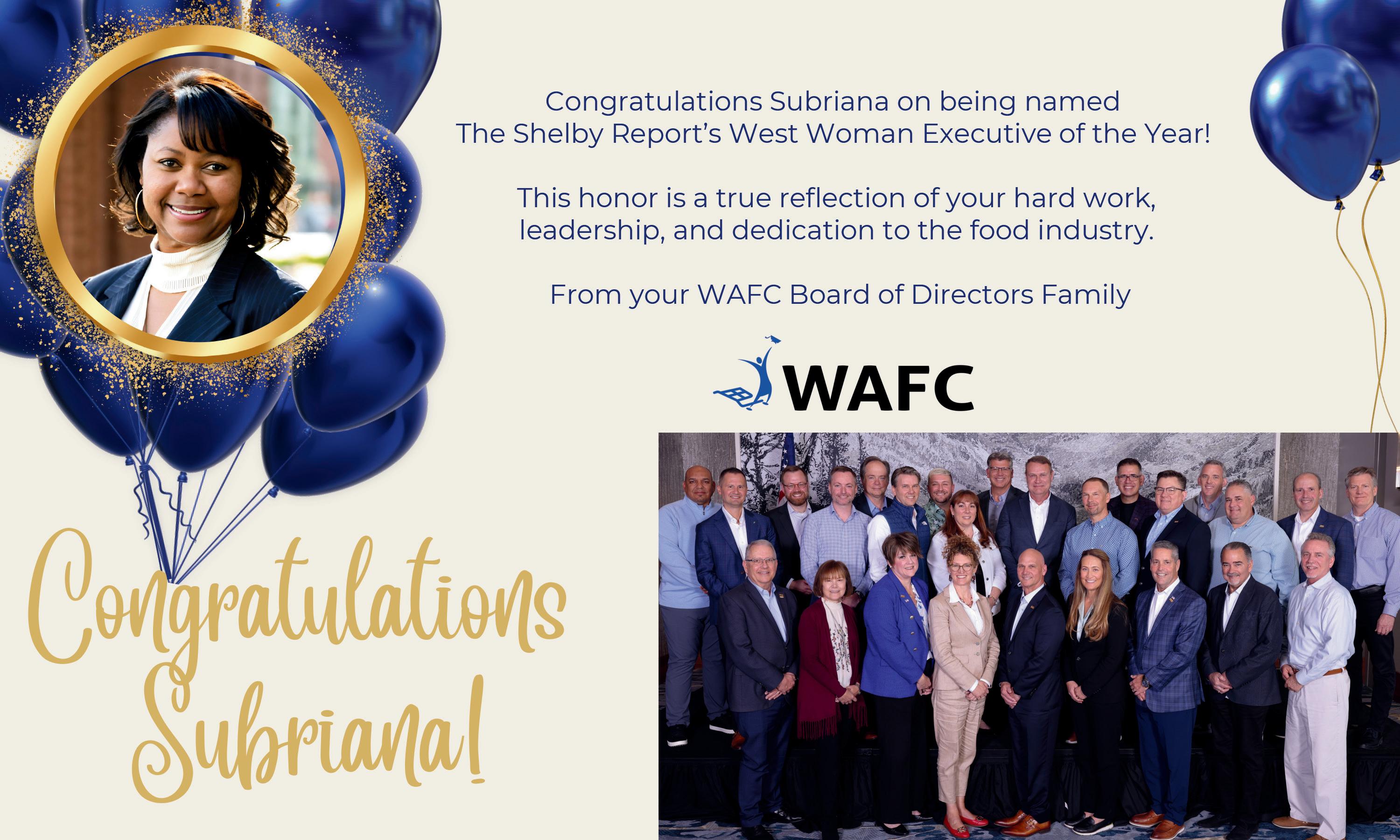
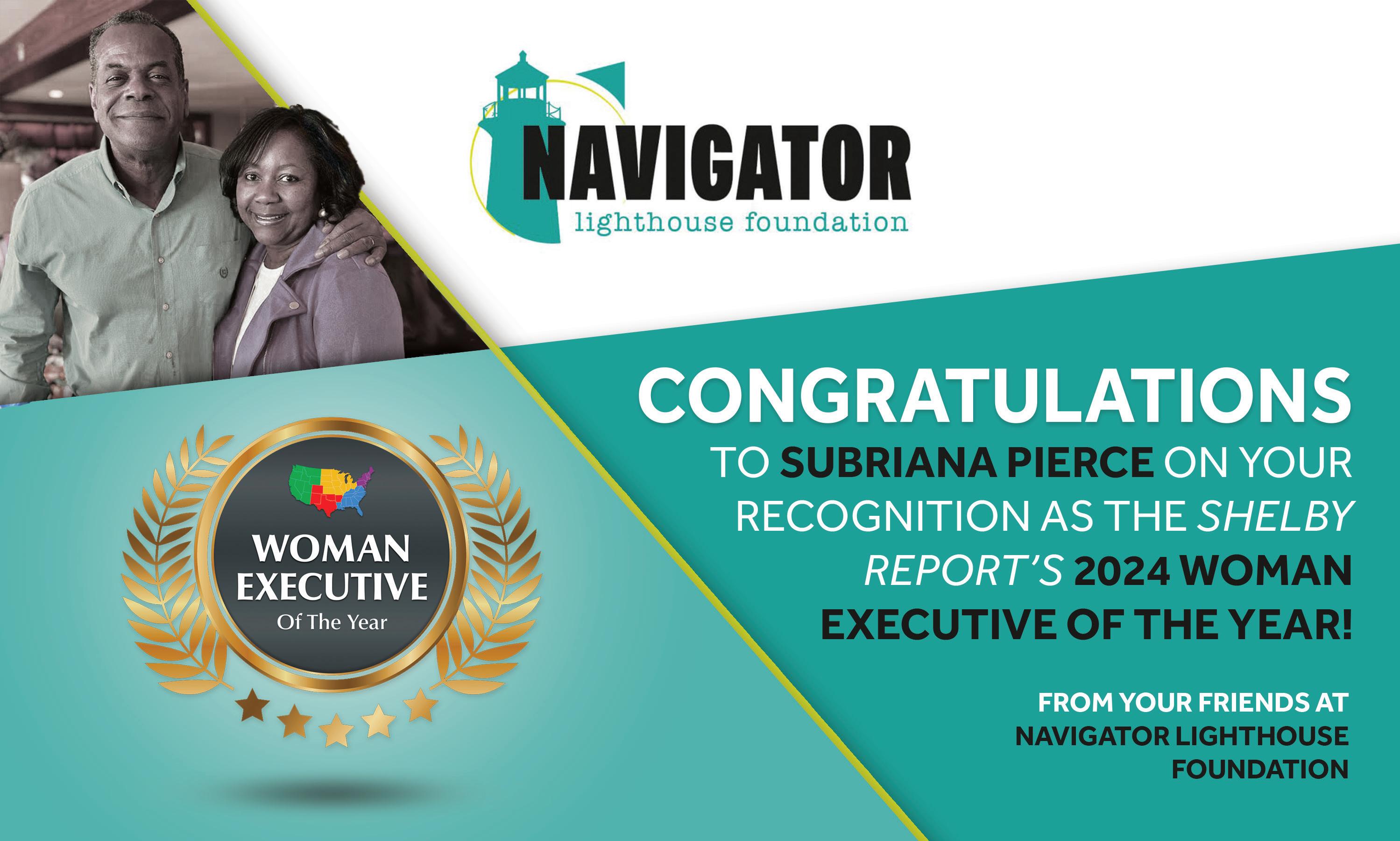
‘Lifts others up and inspires everyone’
“Subriana deserves this honor because she is an incredible values-driven leader who lifts others up and inspires everyone she meets her with her integrity, inclusiveness and innovative leadership.
“She has been an exceptional business partner to us at ECOS, using her extraordinary depth of experience to help us build industry relationships and grow our plant-powered cleaning products brand in the market.
“Subriana is deeply committed to the growth and success of her clients – especially diverse-owned businesses – to build a just and sustainable retail industry. She is a treasure, a trailblazer and truly deserving of this great honor.”
– Kelly Vlahakis-Hanks, President and CEO, ECOS
